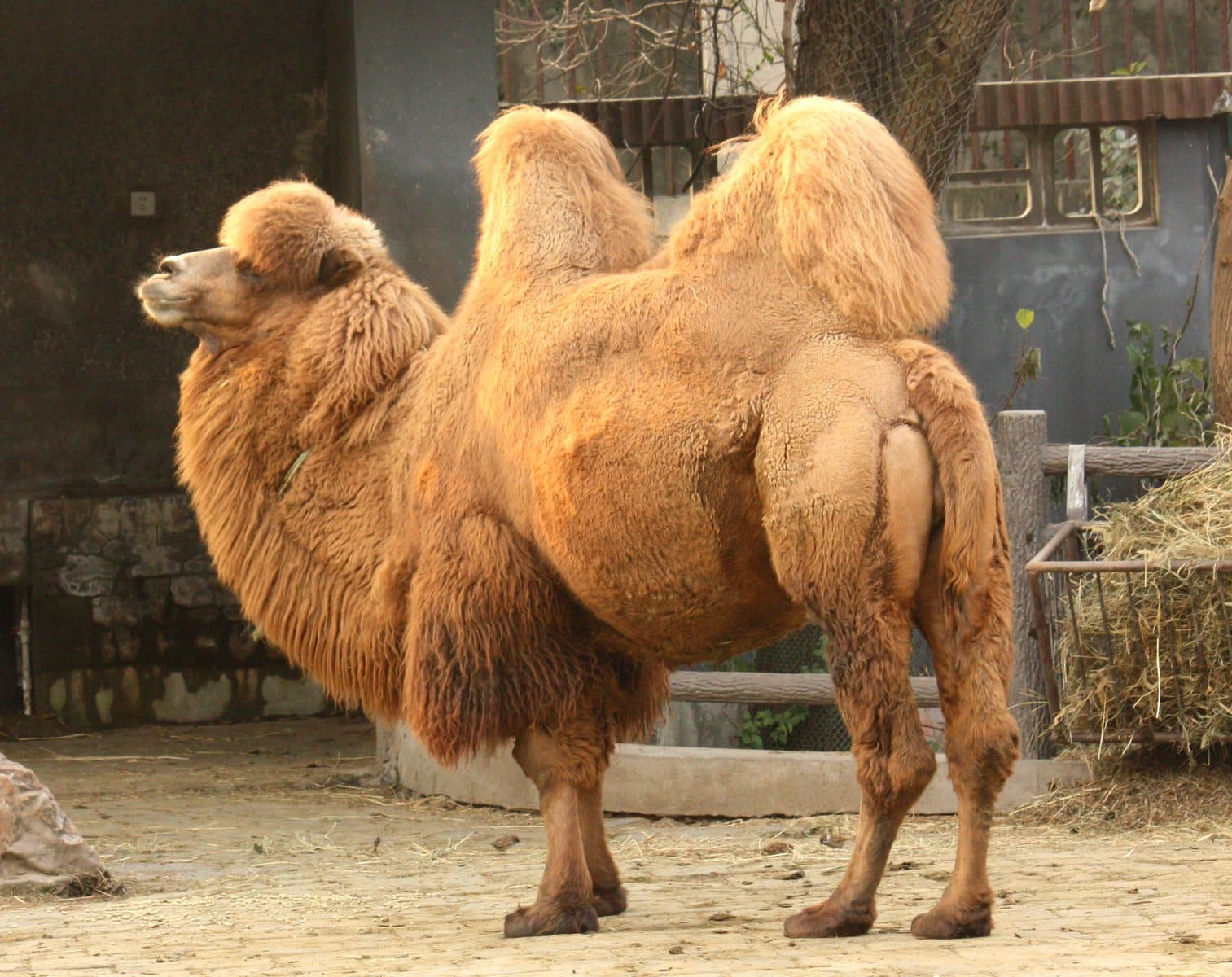According to IUCN Red List, scientists have identified over 2.12 million animal species as of 2020. Insects account for 1.05 million, with over 141,000 species of fungi and protists identified as well as over 110,000 arachnids. Both mollusks and crustaceans have over 80,000 species each, while fish have nearly 36,000. Reptiles and birds both have a little more than 11,000 species each. Amphibians account for just over 8,000 species, while mammals have nearly 6,500. There are also 2,175 coral species. With so many different types of creatures, there are sure to be some with more interesting physical features than others.
The planet is an interesting place, and you don’t have to look much further than the animals that live on it. Most people take animals and their talents for granted, but there are some bizarre things out there. They’re all unique in some respect, but the animals in this list have something that makes them truly one-of-a-kind creatures. So the next time you’re out and about in nature, keep in mind that some of these creatures could be in your area and are capable of things that you could only dream about. Here are some of the coolest animals to ever exist on planet Earth.
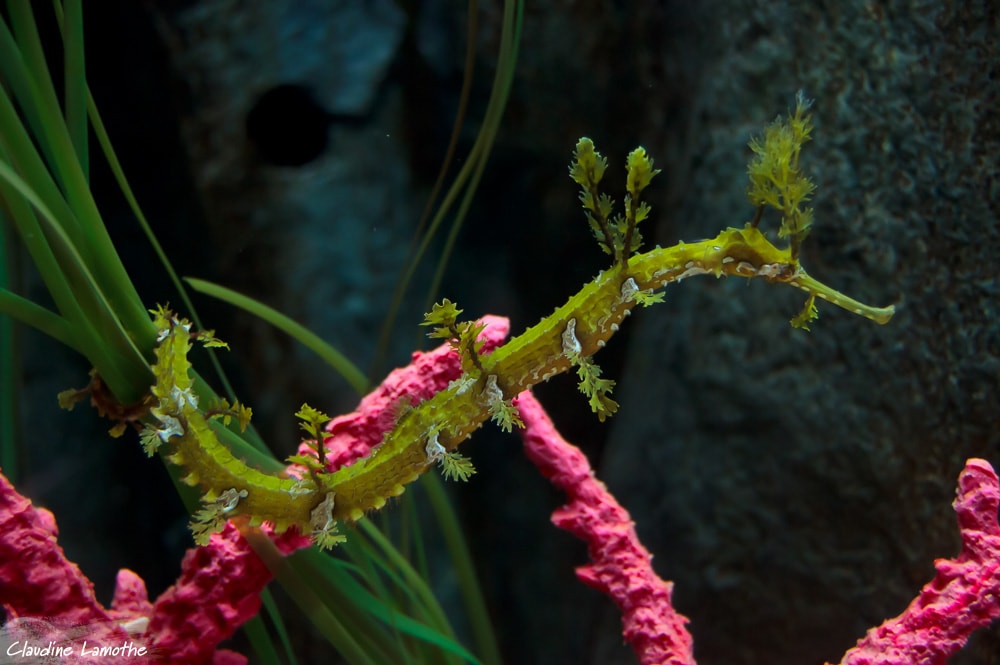
The Ribboned Seadragon
You might think that this is an extremely fancy seahorse, but the ribboned seadragon is not. It’s what’s called a pipefish, which belongs to the same family as the seahorse. They have a striking variety of colors that helps them to blend into their surroundings so that they can’t get eaten by bigger fish. However, the rest of us get to enjoy this display. They almost look like lace with how fine and delicate their features are. These unusal animals use their long tails to grab onto underwater grasses as they look for prey so that the current doesn’t drag them away.
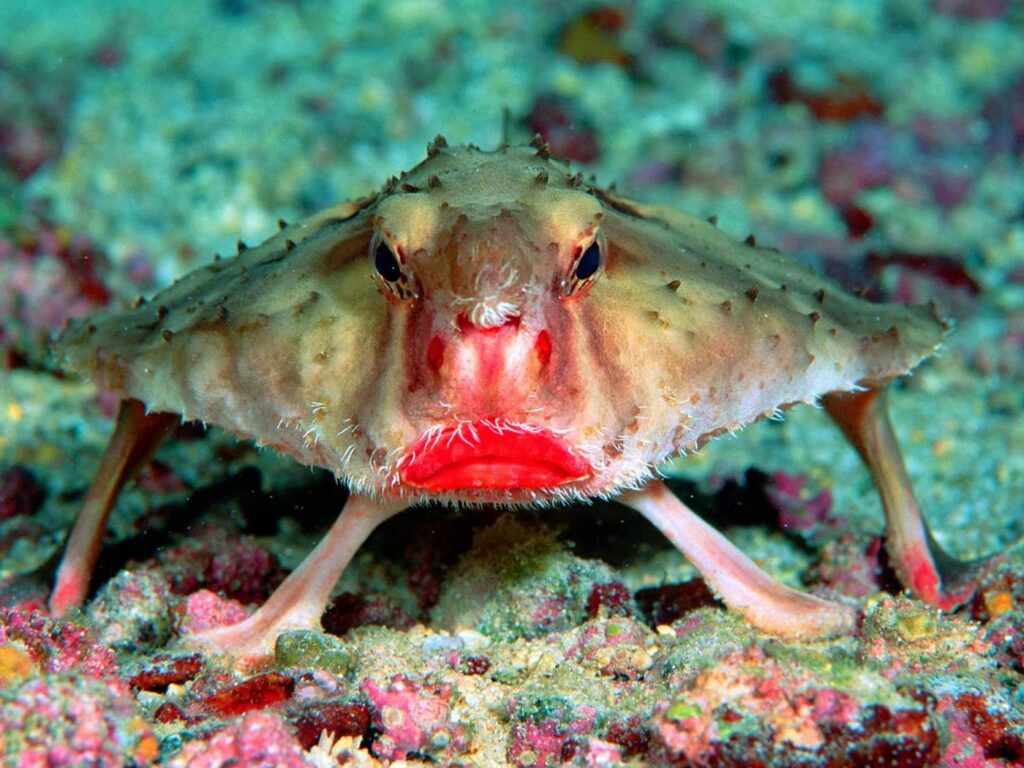
The Red-Lipped Batfish
This may be one of the strangest fish you’ve ever seen, and for a very good reason. The red-lipped batfish has the appearance of an upset 40-year-old woman who went in a little too hard with the lipstick. You wouldn’t want to upset this fish or you may have to face her apprehensive nature. However, what makes this fish even more… confusing is that it doesn’t actually swim. It uses its pectoral fins to walk along the bottom of the ocean. A strange way to evolve but what works…
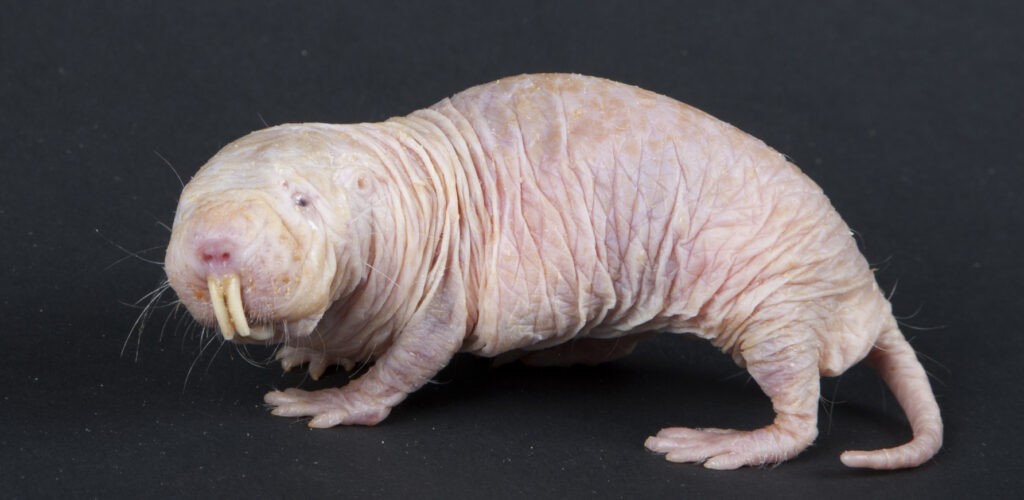
The Naked Mole Rat
To think that one of ugliest things in the world is smaller than six inches and can cause a lot of devastation to a backyard. Thankfully, the naked mole rat lives in East Africa in the grasslands, and mostly feasts on roots and tubers. But despite how it looks, naked mole rats are actually eusocial, meaning that they work together with other naked mole rats to make complicated decisions. This is quite rare in the animal kingdom too. They thrive best in small communities usually led by a dominant female and create intricate underground burrows to live in.
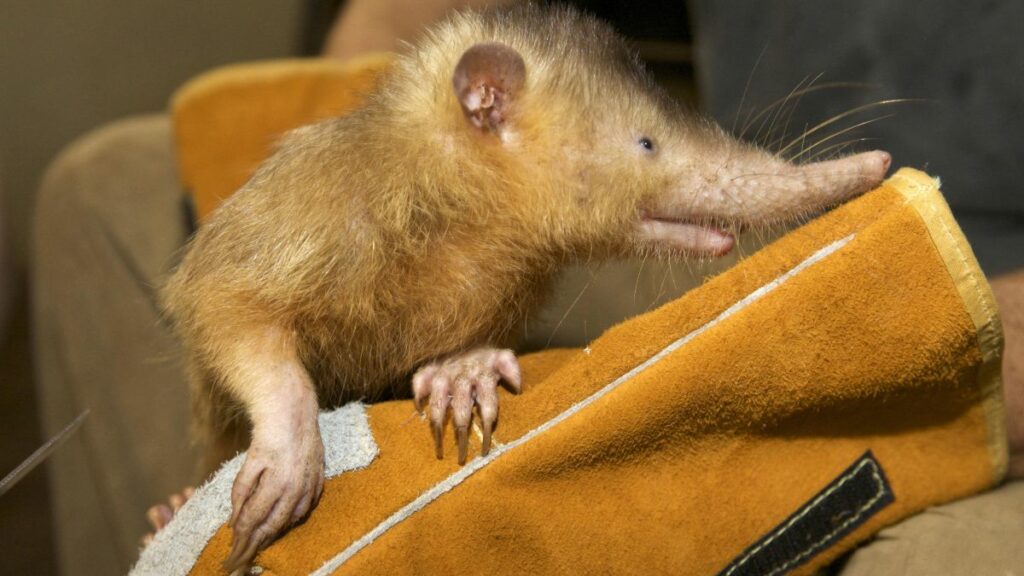
The Solenodon
You might think that this is just a glorified, oversized rat, but the solenodon is definitely more intriguing than that. Scientific researchers are fascinated by this species because it closely resembles a species that went extinct during the era of the dinosaurs. They’re more closely related to shrews and moles than rats, and they’re also the only mammal in the world that injects venom into their prey when they’re eating. So that cute and fuzzy appearance? Yeah, you’re better off not trying to pet this one or else you could get bitten and that venom can do horrible things to your biology.
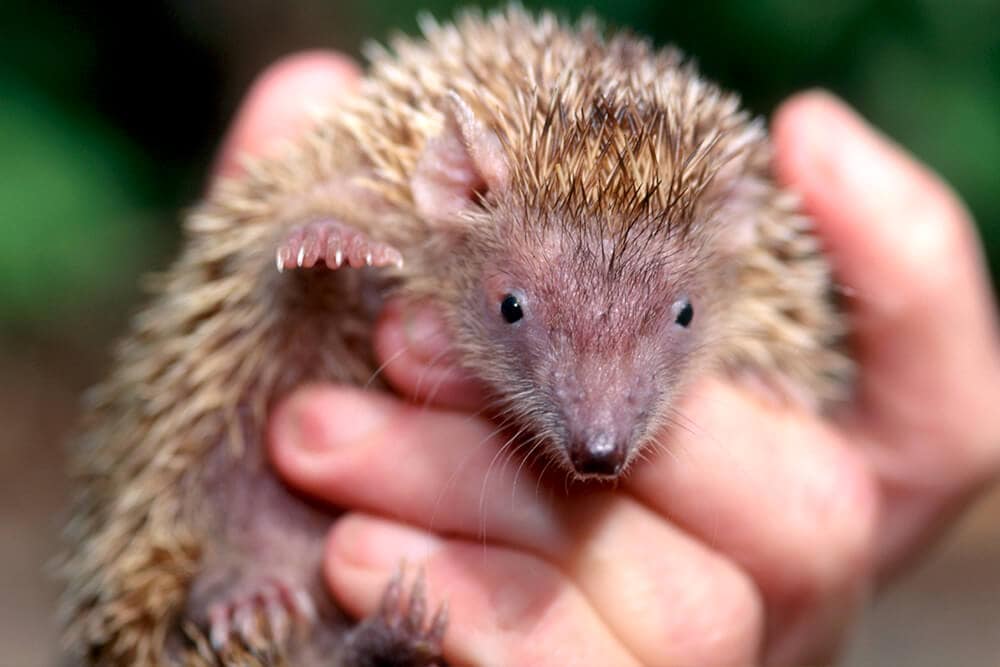
The Tenrec
The tenrec may be one of the most confusing animals anyone has ever seen. Again, it looks like a rat, but it is so much more than that. The tenrec is actually a combination of a shrew, an otter, and an opossum. This is because it has a long snout that it uses to catch and eat earthworms, has a small body, and has a vestigial tail that it can use for balance and grabbing things. What makes them even more unique is that they’re a mammal that uses stridulation, which is the process of making sound by rubbing body parts together, which is usually only found in insects and snakes.
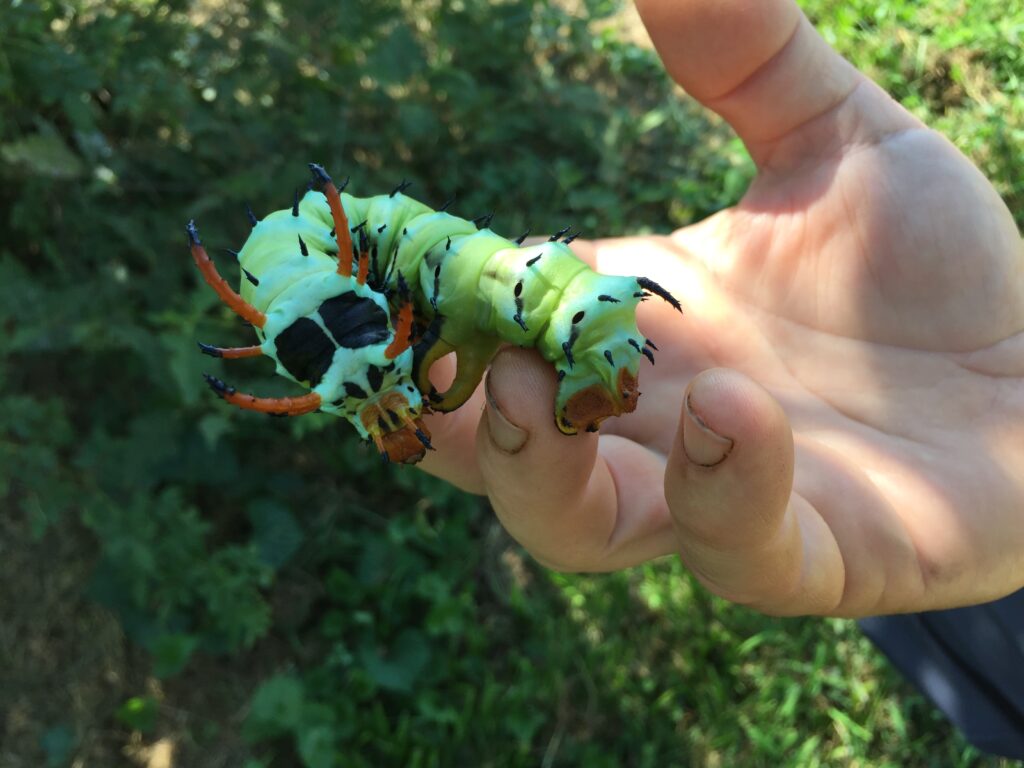
The Hickory Horned Devil
This may be one of the most terrifying caterpillars you’ve probably seen in your entire life, but you have nothing to worry about. Found in the pine forests of the United States, the hickory horned devil is the caterpillar stage of the regal moth or royal walnut moth. Those spines along its body are only intimidating and aren’t actually sharp or carry any toxin. Another defense mechanism they have is that they curl up into a ball on the ground and look like bird poop so that nothing else becomes interested in trying to eat it.
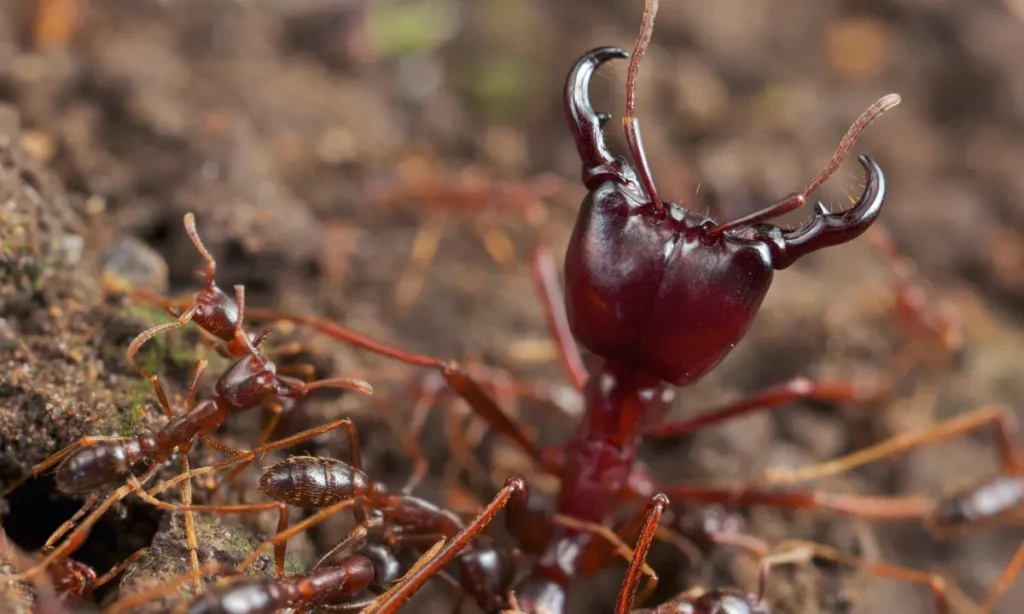
The Driver Ant
Ants earn a lot of respect, since they do everything they can to work together and create intricate colonies that keep the workflow going. There are different kinds of ants, and the driver ant may be more terrifying than any of the others. It has a large head for a very good reason: their bite is extremely painful. In fact, some people have had to suture their wounds after a bite from one of these ants. To make matters worse? Even when the ant is killed, their powerful jaws lock into place, leaving you with no choice but to rip it out.

The Horned Screamer
Would you be able to look at the horned screamer and tell that it’s a relative of the swan? This is one of the strangest birds on this list, mostly because of its appearance. It has a horn-like appendage on top of its head that doesn’t seem to have any real purpose. However, they do have spurs on their wings that they use for fighting. They have quite large feet that aren’t webbed, because they mostly reside in marshlands. Their call is also quite bizarre to listen to and can be quite startling if you’re not prepared for it.
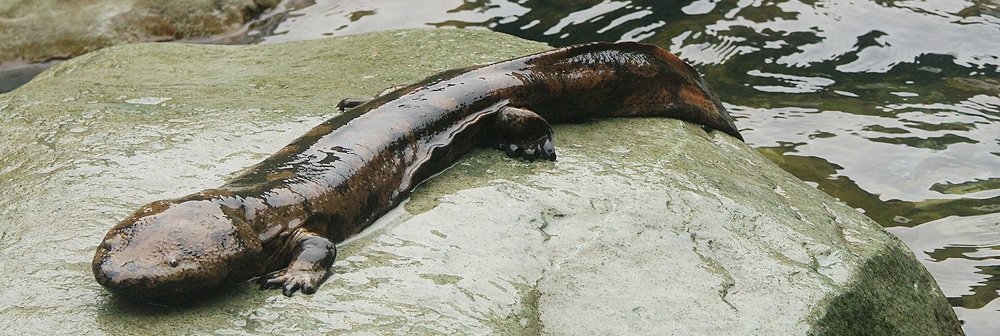
The Chinese Giant Salamander
Some people have considered keeping a salamander as a pet. They can be intriguing to look at, this but this kind of salamander would be way too much for you to handle. And that’s because the Chinese giant salamander can grow up to six feet long! Thankfully, they mostly feast on fish, other amphibians, and insects so you’re not in any harm’s way. Another unique thing about this creature is that it has a wide range of vocalizations, such as barking, hissing and whining. However, their numbers are on the decline, mostly because the Chinese consider it a delicacy.
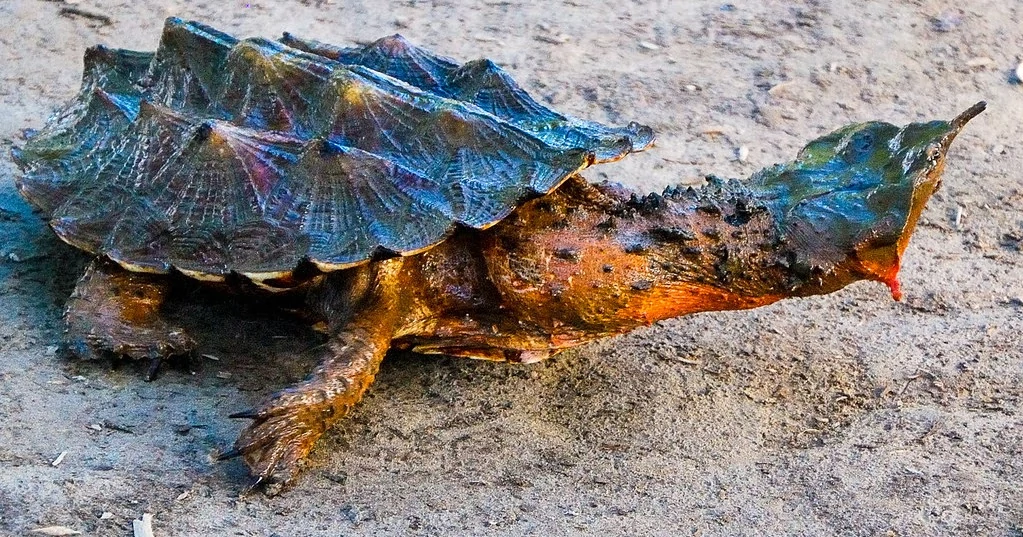
The Mata Mata Turtle
One look at this turtle and you would believe that it was some kind of prehistoric dinosaur. You wouldn’t be that far off; turtles and tortoises are some of the oldest species to still exist from before humans were a thing. The mata mata turtle is a freshwater turtle that is found in the Amazon basins, and its appearance is mostly for camouflage reasons. You see, this turtle is only 18 inches long, which makes them prone to be eaten by bigger animals. If it remains still, it mimics the appearance of fallen leaves in the mud.
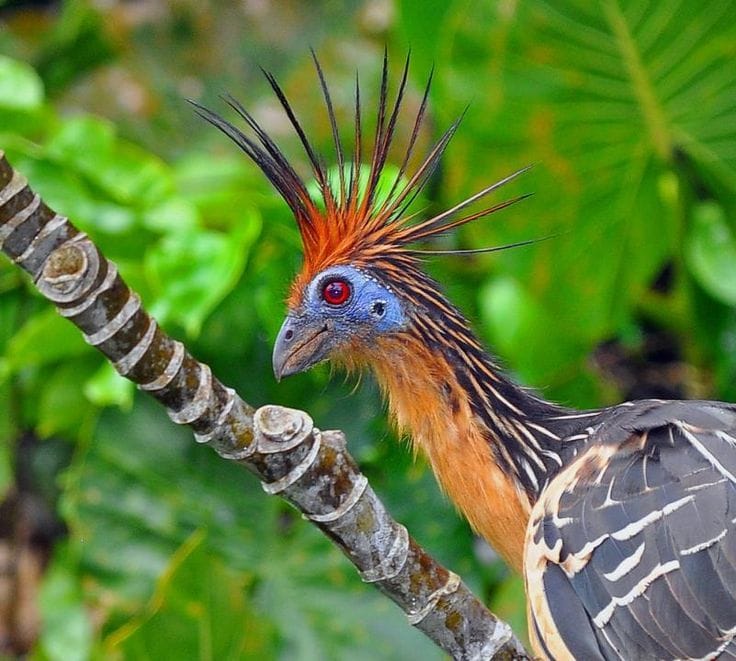
The Hoatzin
The hoatzin is also known as the Canje pheasant, but has also been called the punk-rock bird, and you can see why. It sports a colorful array of feathers on top of its head that resemble a mohawk of sorts. They live in the mangroves of South America and have very many unique characteristics that set them apart from other bird species. Firstly, their chicks are born with claws on their wing digits, though it’s unknown what they’re used for. Secondly, the bird’s unique digestive system creates a manure-like smell, earning this bird another nickname of the stinkbird.
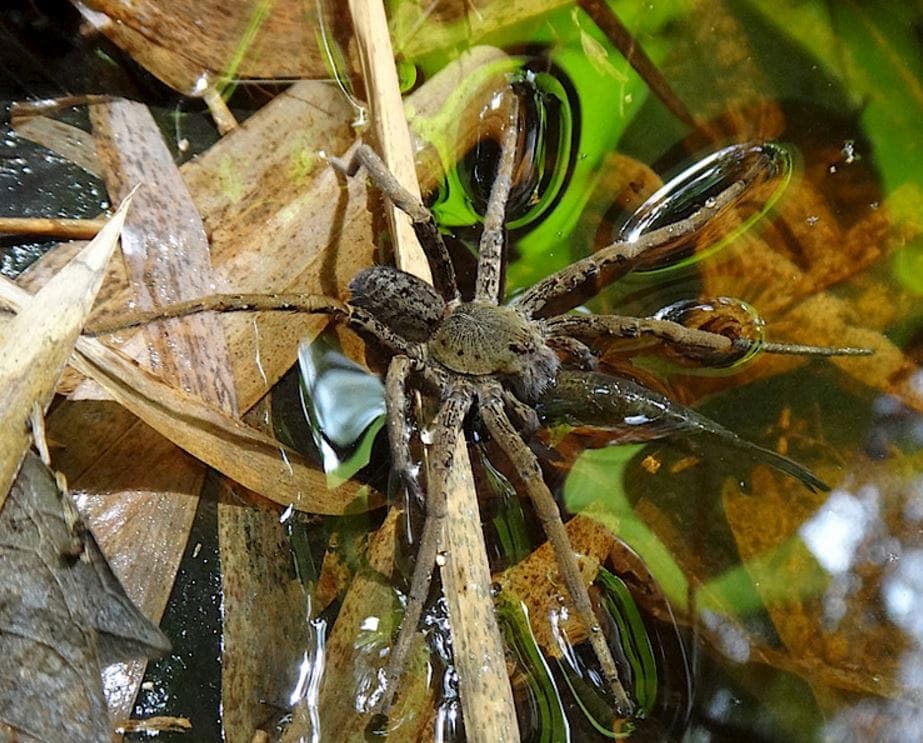
The Amazon Giant Fishing Spider
If you’re arachnophobic, then you may want to skip this entry in the article. This is the Amazon giant fishing spider, and it’s earned that name for a reason. It resides near the rivers and lakes of South America because this spider actually goes fishing. It has the size to back it up too, getting as big as 8 inches alone. Instead of spinning a web, they wait by the edges of bodies of water, looking for the telltale ripples of their prey. Once they’re close enough, the spider runs across the water’s surface, grabs its meal, and injects venom right into it.
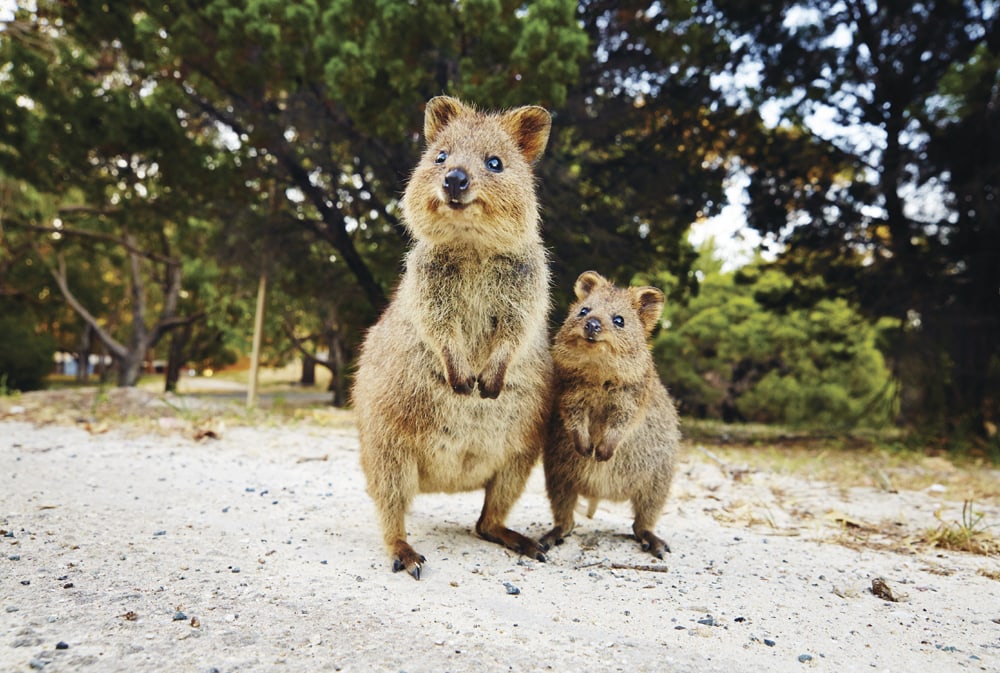
The Quokka
The quokka has sometimes been confused for a very small kangaroo, but it’s a separate species altogether. They’re only about 20 to 30 inches tall and live off the coasts of Australia. They have absolutely no fear of humans so the trend has been for people to take pictures standing right next to them. Keep in mind, however, that it is illegal to touch or feed them so be sure to keep your distance if you’re ever in that part of the world or you may end up having to pay a $300 fine.
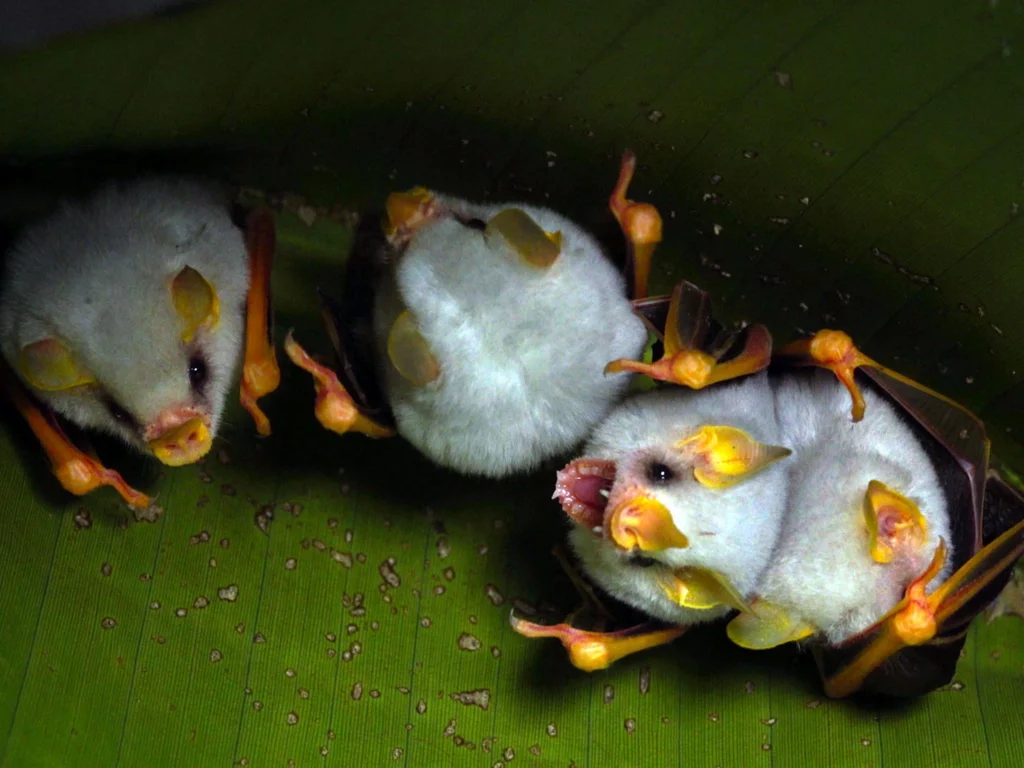
The Honduran White Bat
Bats come in a wide range of sizes, shapes, and colourations. Most people are afraid of them, usually because they believe that all bats carry rabies. The Honduran white bat is also called the ghost bat, but there’s nothing scary about it. It’s only 1.5 inches long and is one of the two white bat species in the world. They mostly eat fruit in the jungles of Central America and don’t actually live in caves. They cut the large leaves of plants in a way that they fall over to form a tent, and then the colony lives on the underside where they’re least likely to be seen. Talk about ingenious.
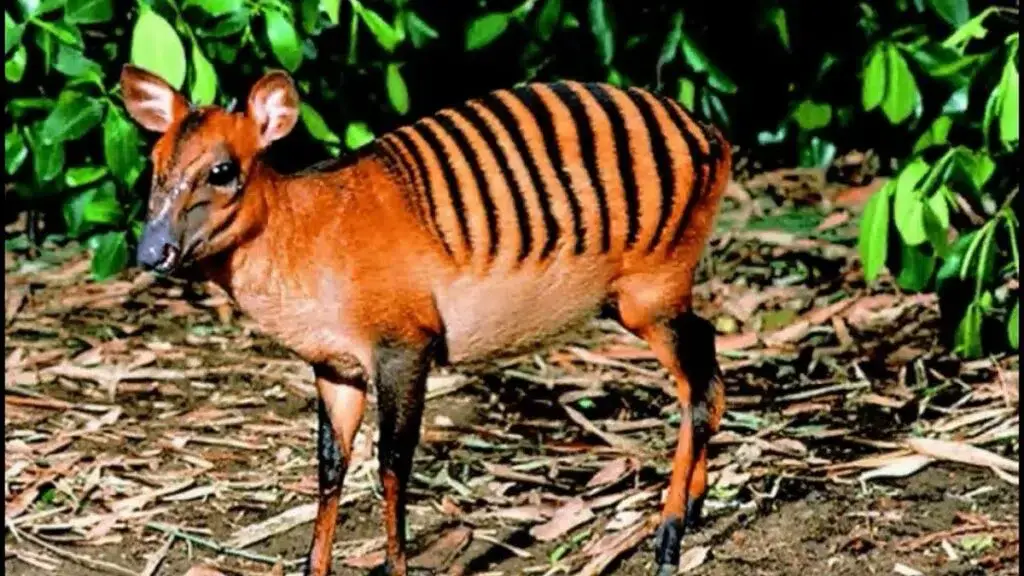
The Zebra Duiker
The zebra duiker is actually a small species of antelope and not a zebra. It only has that name because of the coloration on its back; it’s also called the striped-back duiker. They only get to about 30 inches tall and feasts on vegetation growing on the West African plains. The stripped patterns are designed to help to blend in with their surroundings so that predators can’t find them. The bones in their nasal passage are quite strong, which allows them to crack open the tough exteriors of certain fruits.
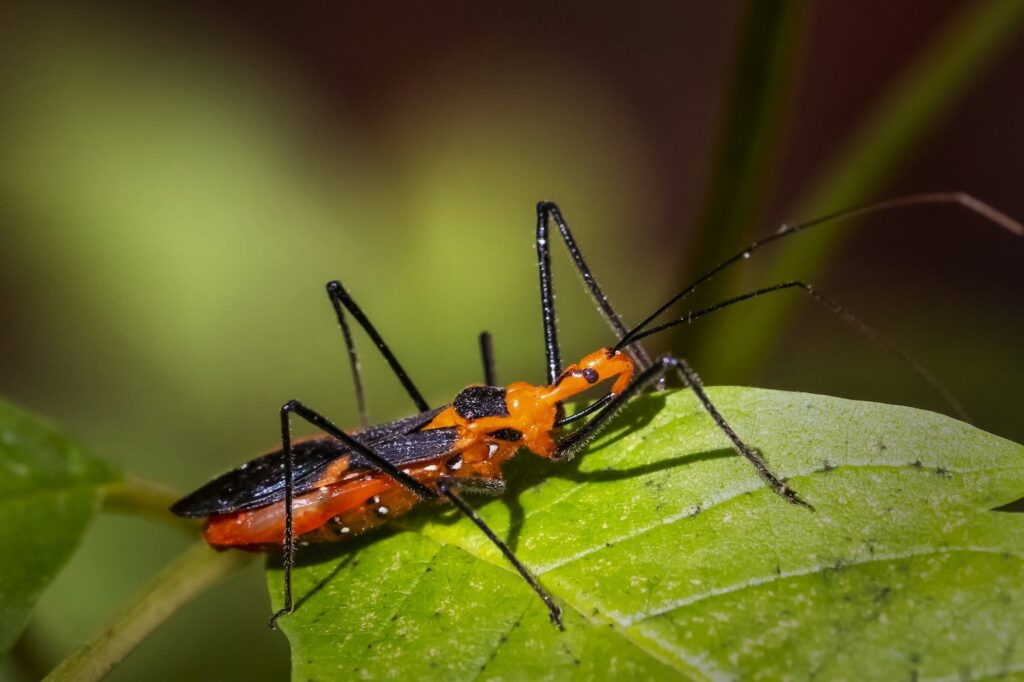
The Assassin Bug
The assassin bug looks quite bizarre but it has even more bizarre practices that keep it hidden from its prey. Is it its ability to blend into the background or have lightning-fast reflexes? No, it wears the carcasses of the insects it devours. It has a long proboscis that it inserts into its prey and sucks out all of the juices inside, leaving an empty exoskeleton. It then drapes those over its body so that it looks and smells like its prey so that it can get in closer. Another unique way it hunts? It covers its legs in sticky sap so that it can grab bees right out of the air without much effort.
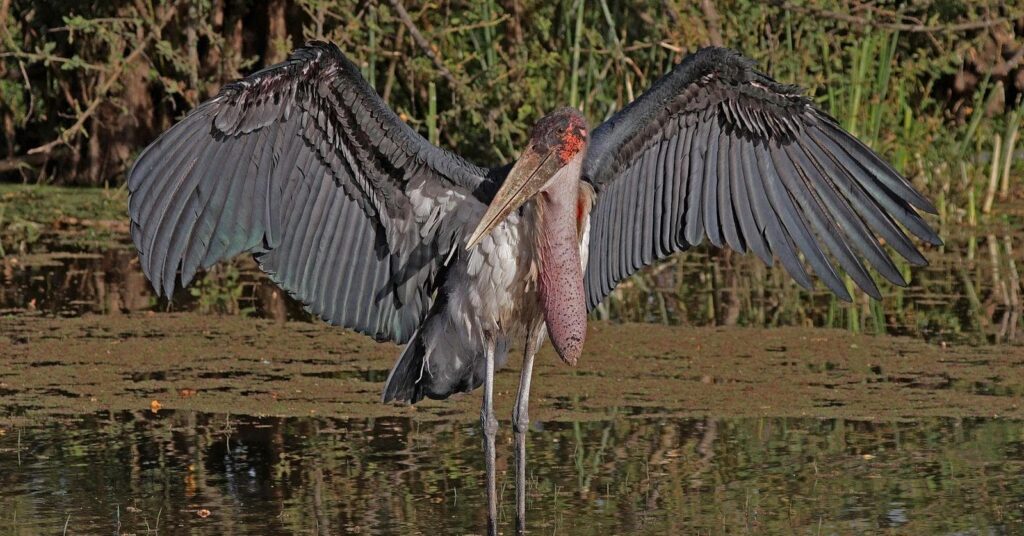
The Marabou Stork
Although it looks nothing like a vulture, the marabou stork eats exactly like one. It feasts on carrion, human garbage, lizards, snakes, frogs, rats… if it can find it, it will eat it. That’s part of the reason why this bird doesn’t have any feathers on its head. However, the downy feathers of this bird are often used in feather boas because of how soft they are. It can stand up to 4 feet tall and that massive beak isn’t anything to laugh at either. It looks quite dangerous, though there have been no reported stories of anyone being attacked by them.
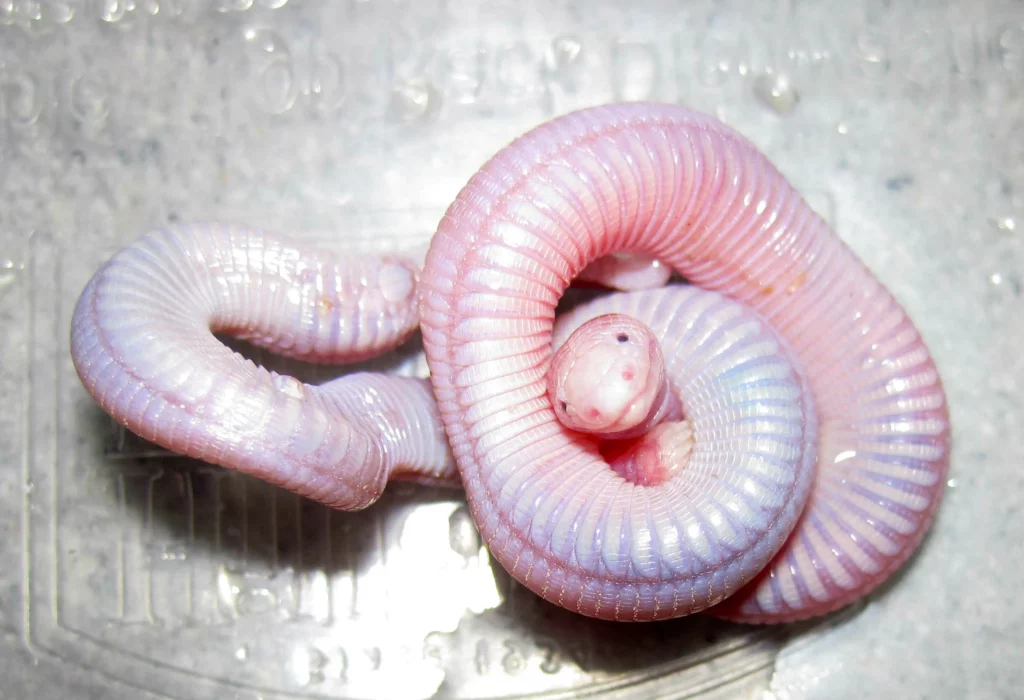
The Mexican Mole Lizard
Is this a mole or a lizard? The Mexican mole lizard looks like a weird combination of both. They mostly eat earthworms and grubs, and mostly lives underground. This is why it has no pigmentation to its skin, giving it that pink mole-like coloration. These strange animals don’t dig too deep, however; they live near the surface, and they only come out at night or after heavy rains. They have big powerful claws on their front legs too that help them to dig through the dirt to get to food and safety.
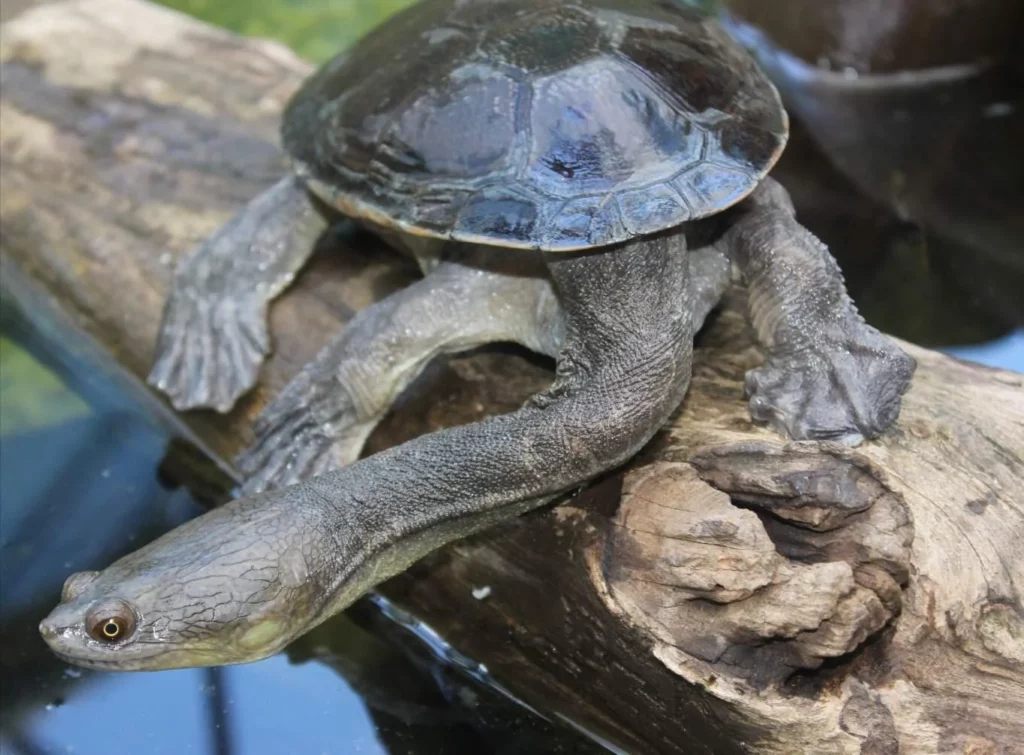
The Eastern Long-Necked Turtle
The Eastern long-necked turtle is like a reptilian version of a giraffe. Its snake-like neck is about as long as the length of its shell, which means that it can’t be retracted all the way. Instead, it has to bend its neck sideways to tuck it into its shell. It likely uses this long neck to make it easier to catch fish in the water of Australia, but don’t think that it is sticking its neck out into danger. When this turtle is threatened, it releases a stench from its musk glands that smells absolutely terrible.
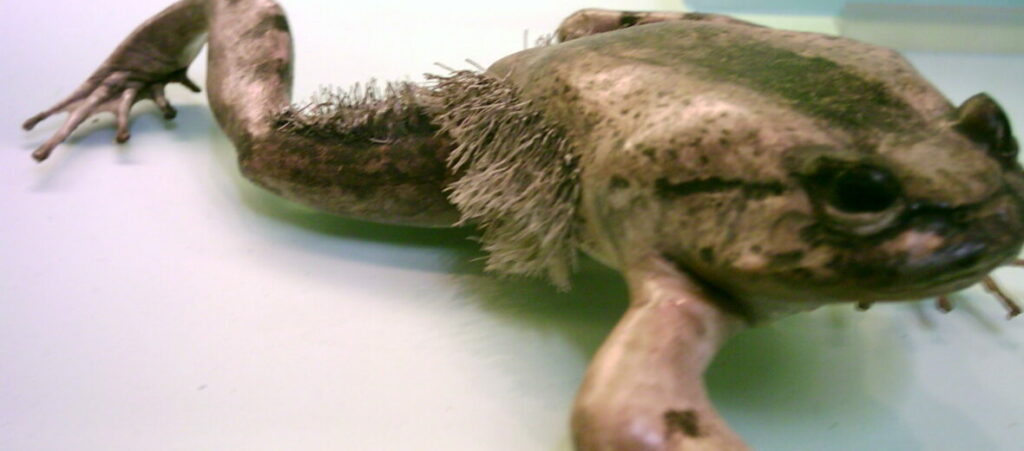
The Hairy Frog
The hairy frog, alone, is quite a sight to behold. The males in particular are known to grow some hair along the sides of their bodies during mating season. But that’s not the only thing that makes this frog stand out from the rest. Think Wolverine from the X-Men. This frog is capable of breaking its own bones in order to create claws that it uses to fight off other frogs or predators. It’s unknown if these claws break off or retract back into the toe pads where the tissues can be regenerated because no live specimens have been studied.
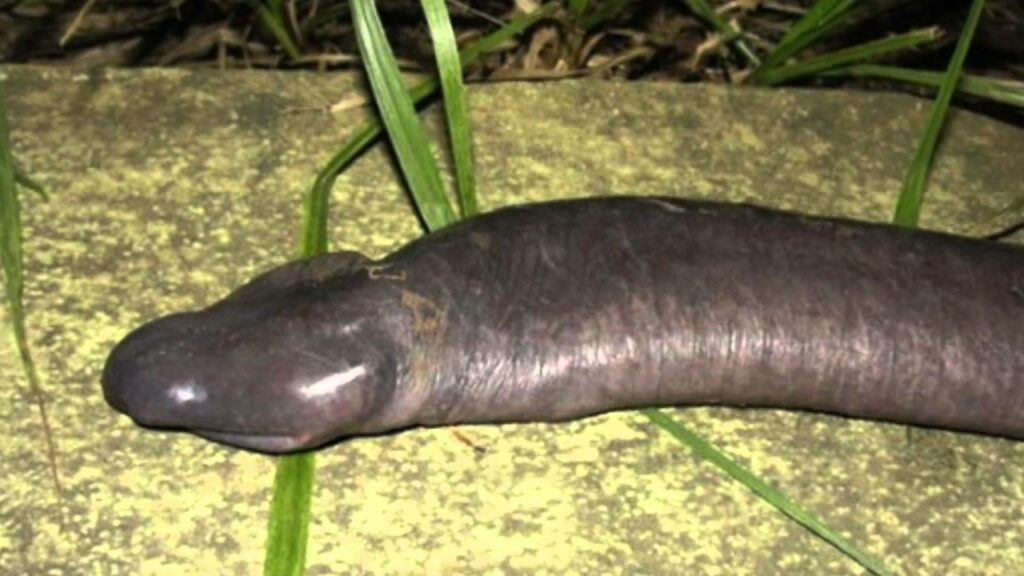
The Atretochoana Eiselti
This might be the most NSFW image on this list of animals, so you may want to continue scrolling if you’re not at home right now. The atretochoana eiselti is also called the “penis snake” for a very good reason. A resident of the Amazon and Madeira Rivers, this eyeless amphibian isn’t really a snake at all. It has a long snake-like body with the earthworm-like rings along its body. And who could forget the odd shape of its head? It definitely resembles the male human anatomy, which probably made it quite shocking to those who first spotted this creature.
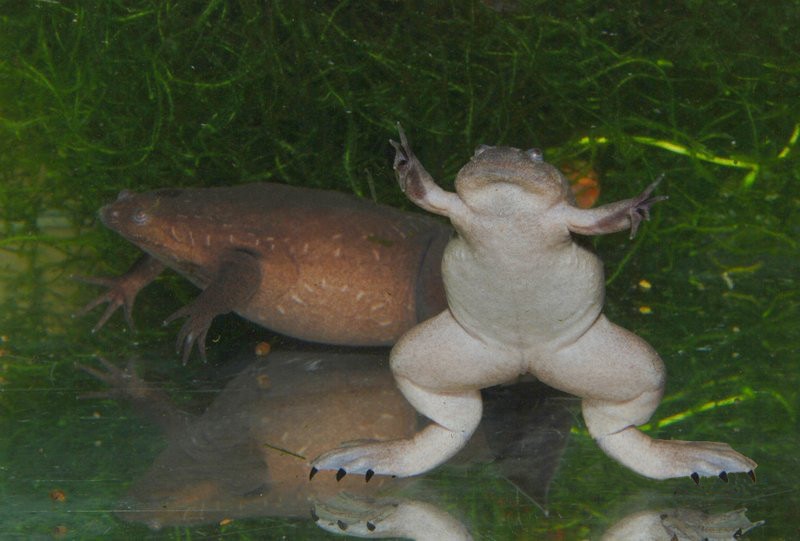
The Clawed Frog
The clawed frog is not like most frogs when it comes to eating. Where most frogs would use their sticky tongues to catch insects whole and eat them, the clawed frog has three short claws on its hind feet which it uses to tear food apart. That’s because they have tongues that don’t move. This frog also doesn’t have eyelids or ears, and has its eyes situated on the top of its head. That doesn’t mean that they’re deaf, however. They have disks under their skin that they use to sense sound vibrations around them.
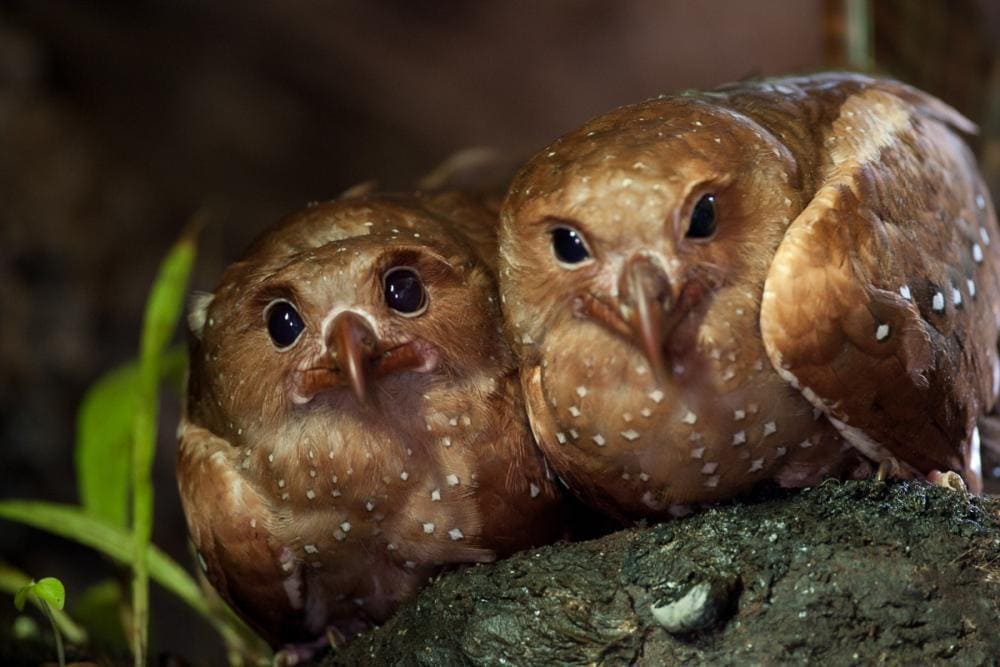
The Oilbird
The oilbird has an unfortunate name, because there’s nothing oily about them. They’re actually quite pretty, with shade of brown and diamond-shaped white spots along their bodies. They eat mostly fruit, which is pretty normal for birds, but the oilbird is actually nocturnal, meaning that they find their food at night. And because it’s dark out, they use echolocation to find their food. A strange thing to do when their food doesn’t even move. The reason that they’re called the oilbird is because they eat the fruit of the oil palm, and were unfortunately hunted and killed in order to extract the oil from their bodies.
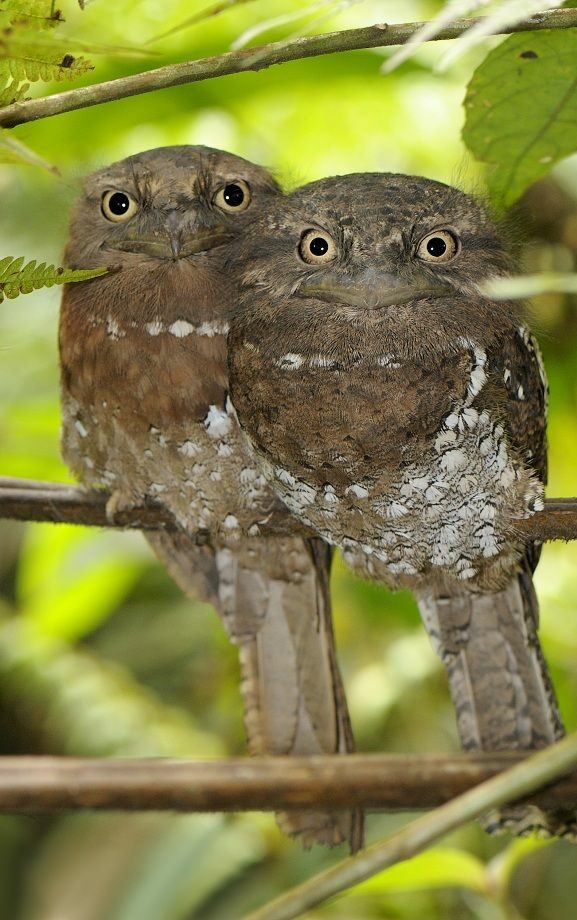
The Sri Lanka Frogmouth
The Sri Lanka frogmouth is closely related to nightjars, which also have wide mouths and beaks like this one. Their oversized head gives them the appearance of a Muppet, but the shape of their head serves a purpose. This bird is nocturnal by nature and their head shape gives them binocular vision so that they can find their food, which mostly consists of frogs, mice, and insects. Their wide bill makes it easy for them to scoop up their prey too, increasing their chances of having a meal any given night.
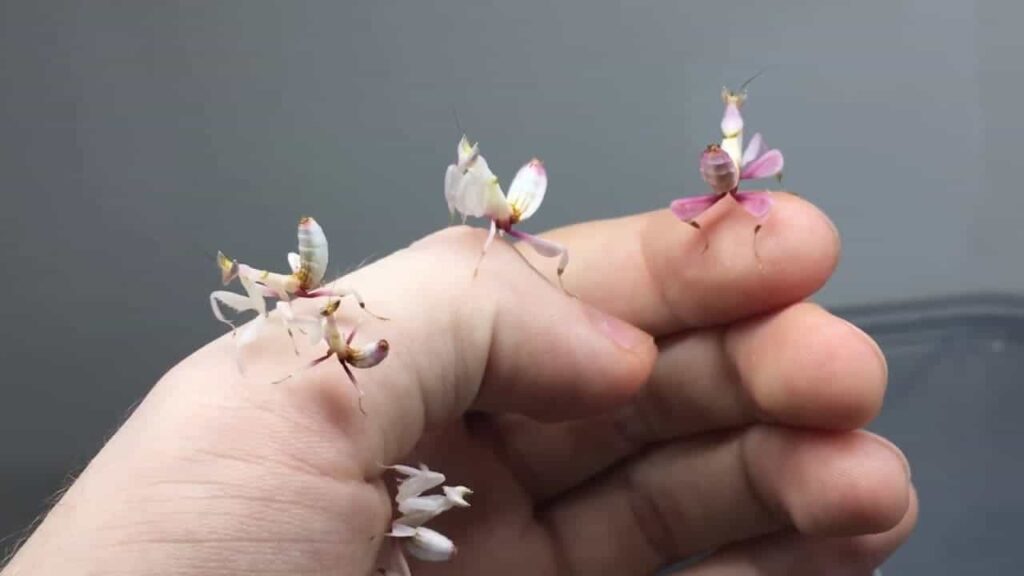
The Orchid Mantis
There are some very strange looking bugs out there, but the orchid mantis might be one of the most beautiful. It doesn’t look that much different from an orchid, and this isn’t because the orchid is its favorite flower. The mantis is actually imitating the flower in order to attract pollinating insects, which it eats! This is the ultimate deception but is honestly one of the easiest ways to catch food without having to expend a lot of energy. This camouflage can also be used to hide itself from its predators too, so this disguise works both ways on increasing the mantis’ survivability.
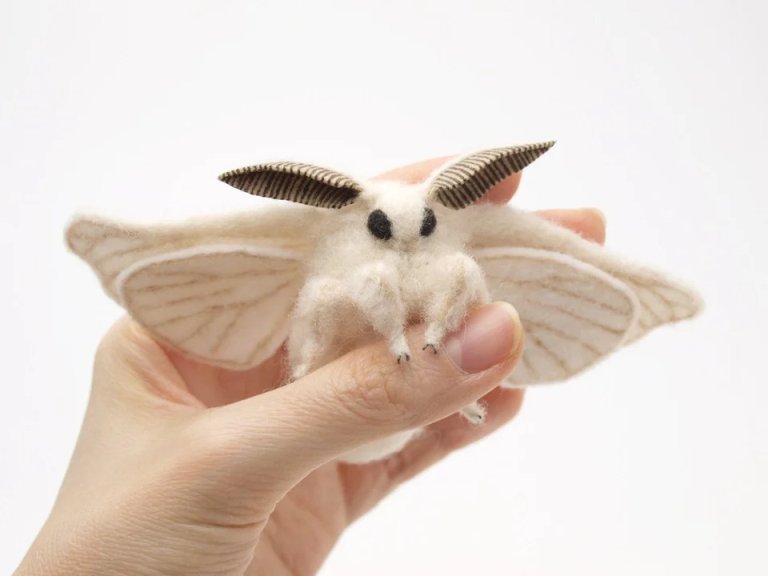
The Venezuelan Poodle Moth
Moths are usually avoided at all costs, because they have a bad reputation of putting holes in your clothing. The Venezuelan poodle moth, however, may be one of the cutest moths in the world. It’s covered from head to toe in fuzzy fur that makes it resemble a poodle. The fur doesn’t really serve a specific purpose, but it definitely makes this moth more pleasing to the eye. You’re unlikely to see one of these in the wild, however, since they live in the forests of Venezuela.
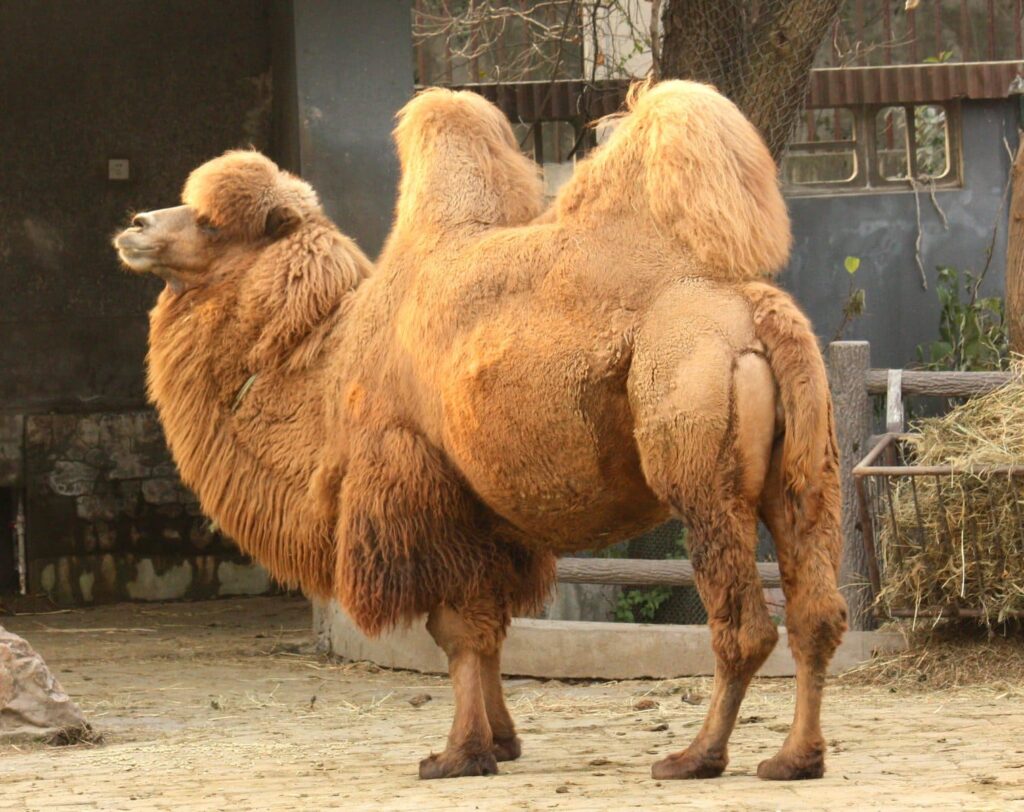
The Bactrian Camel
The Bactrian camel is often overlooked because people think that they’re not that intriguing to look at. However, if you knew what they were capable of, you might change your story. The Bactrian camel is actually much different from their Arabian cousins because they have two humps instead of just one. These humps are made of fat and are used to store water when the animal doesn’t have access to a drinking source. That makes it so that the camel doesn’t dehydrate as it wanders through the desert; the more water it uses, the smaller the humps get.
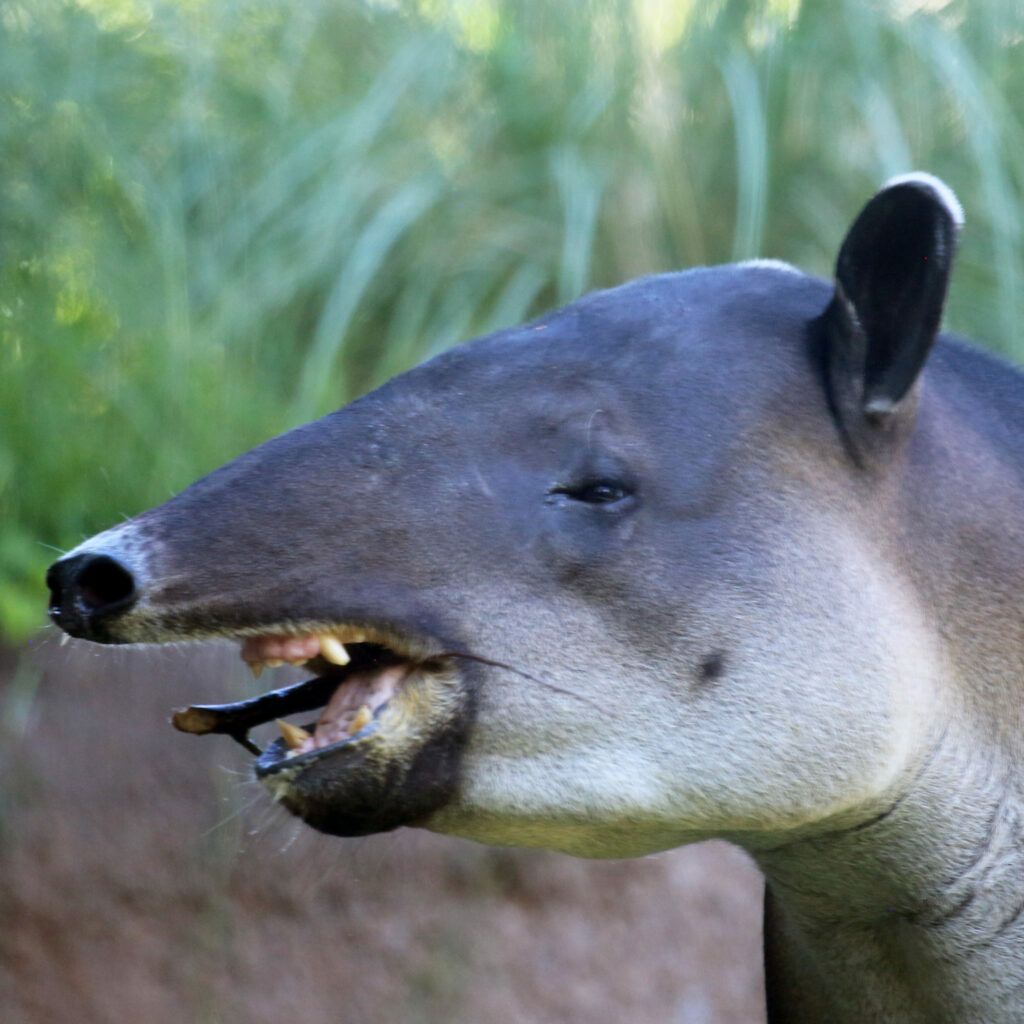
The Baird’s Tapir
Have you ever seen a tapir before? They kind of look like mini-elephants that have had their trunks removed. They reside in rainforests and flooded grasslands, though their numbers are currently in decline. In Belize, they’re known as the mountain cow since they graze on grasses and leaves. Don’t assume that their cute good looks means that they’d make good pets. They’re roughly the size of a cow, and one was known to have attacked the Costa Rican Minister of Environment in 2006. So it might be best to just leave them alone.
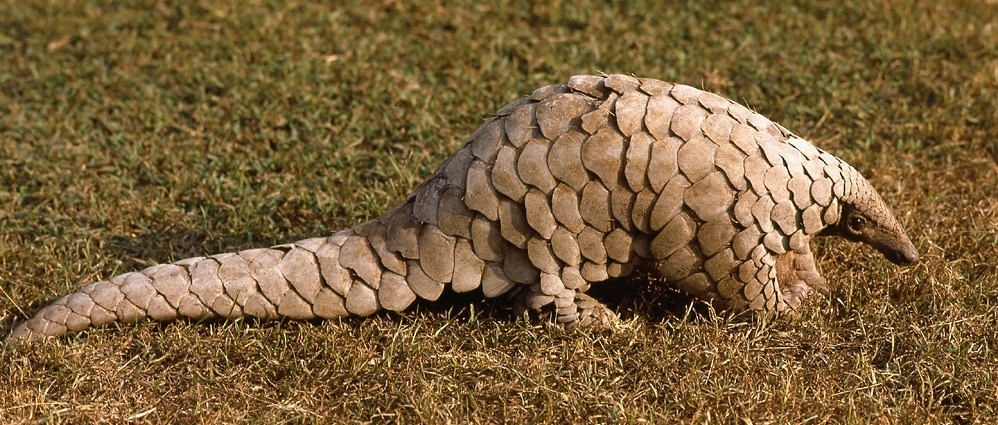
The Pangolin
The pangolin has sometimes been confused with an aardvark or an armadillo, but they’re not really related to them at all. They’re more closely related to anteaters. They sport huge claws that they use to dig at huge ants’ nests so that they can eat the delicious bugs inside. The reason for their armor-plating is to protect themselves. All they have to do is curl up into a ball and tuck their head in so that any predators can’t get to their soft underbellies. Beware, however: they have stink glands that they also use to deter predators, and have been considered worse than the scent of a skunk.
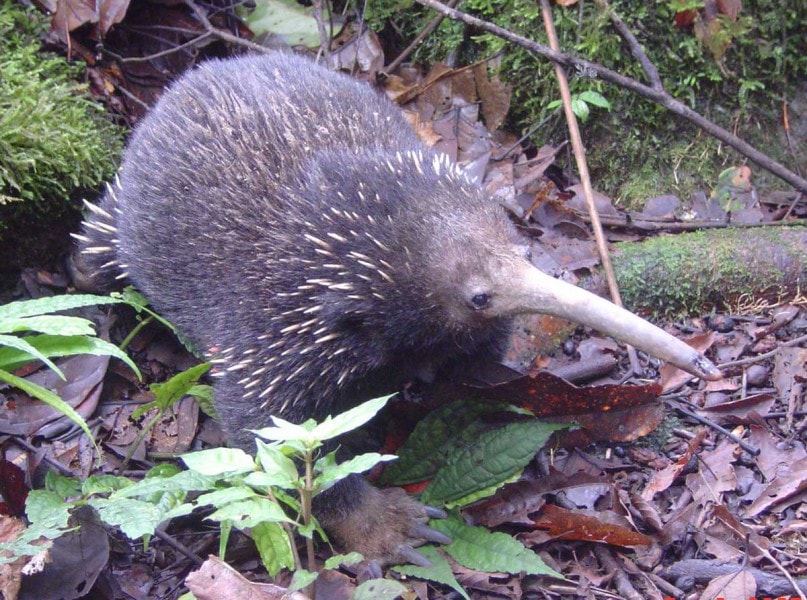
The Long-Beaked Echidna
The echidna is similar to the platypus, in that it is a mammal that lays eggs. That makes them an outlier from the characteristics of what mammals actually are. Despite laying eggs, they also lactate like other mammals so that their young can feed. They kind of look like a cross between a duck and a porcupine, but it’s not really clear what kind of food they eat. It’s unknown what those spines are used for, but the males have spurs on their hind legs that they use for fighting each other over mates and territory.

The Blue-Tongued Skink
Blue-tongue skinks have plenty of interesting characteristics, the most notable being their very bright blue tongues. Nevertheless, this is just for display; these reptiles’ other talents are mostly for defensive purposes because of how many predators hunt them down. Firstly, a blue tongue skink will actually bite off its own tail and leave it behind in the dirt to confuse predators. Secondly, their coloration looks like a Death Adder, which is a snake. Why? To deter predators, of course. They can expand their rib cages to appear much bigger than they really are in hopes of scaring off any predators trying to eat them.
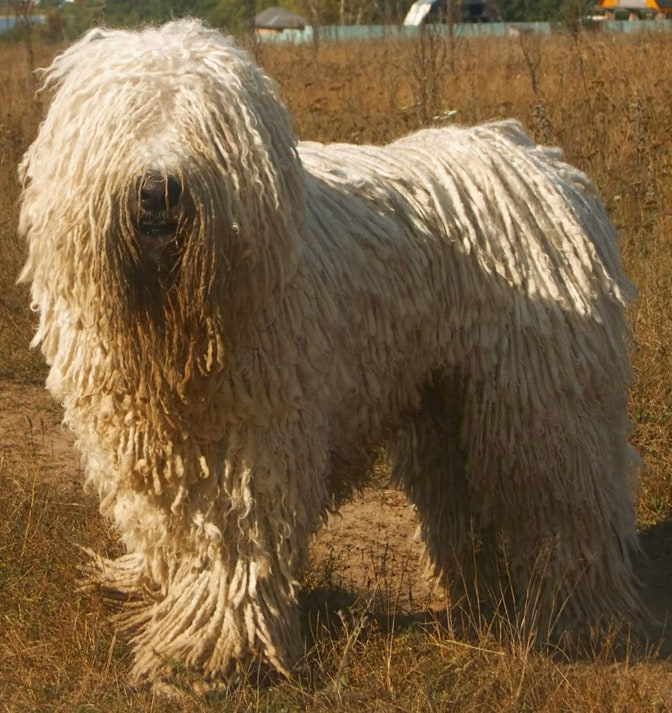
The Komondor
Also known as the Hungarian sheepdog, the Komondor is a breed that protects livestock from predators. What really makes them stand out is their very unique coat, and it’s quite long and thick, making it similar in appearance to cords or a person’s dreadlocks. The breed starts with soft and fluffy fur like a puppy, which then starts to curl as they mature. The outer coat becomes coarse and corded, possibly to protect the dog against the elements, while the undercoat remains soft. However, grooming is necessary to keep the cords separated so that the dog’s coat doesn’t become one giant tangled mess.

The Alligator Snapping Turtle
The alligator snapping turtle is one of the most terrifying turtles globally. They tend to live in swampy areas, as their primary source of food is fish. It’s one of the largest freshwater turtles and can weigh as much as 175 pounds. Their jaws are strong enough to claim a human finger if you get too close. However, what really makes the alligator snapping turtle unique is how it catches fish. It will sit at the bottom of the river bed and open its mouth. It has a projection at the end of its tongue that looks like a red wriggling worm. Of course, this is going to be attractive to any hungry fish, and once they try to take a bite, the snapping turtle’s jaws clamp down on its easy meal.

The Roseate Spoonbill
There are some strange bird species, but nothing is more bizarre than the roseate spoonbill. Its body is pink in color, similar to a flamingo, but the bill is what makes it stand out from the rest. This bird’s beak has the shape of a spoon, as its name suggests. It may look strange, but this bill actually has a purpose. The spoonbill wades through fresh coastal waters with its beak in the water. It waves it around from side to side, stirring up the river beds to find their meal. Spoonbills mostly feed on frogs, aquatic bugs, crustaceans, and small fish.

The Proboscis Monkey
Monkeys and apes are our closest relatives when it comes to animals on the planet, but sometimes you have to wonder why some monkeys look the way they do. One of those is the proboscis monkey, which has a nose that only a mother would love. Other than being a rhinoplasty surgeon’s dream job, the shape of the proboscis monkey’s nose actually serves a purpose. Firstly, only the males have noses like this, and secondly, they use them to attract mates. Scientists have discovered that the males with the largest noses tended to have the most females in their harems.
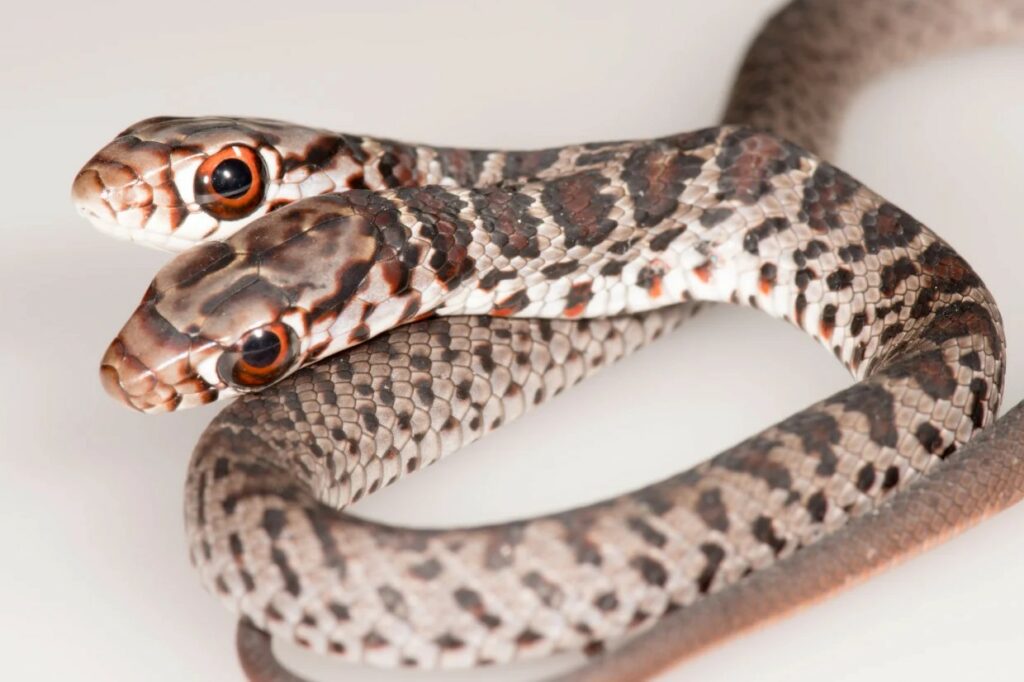
A Two-Headed Snake
Conjoined twins aren’t anything new, but it rarely happens in the animal kingdom. This two-headed southern black racer was found in Florida and was likely the result of two monozygotic twins that didn’t separate during development. Unfortunately, two-headed snakes rarely survive in the wild because they have separate brains that want to make different decisions. That can be anything from where to go to what to eat, which can put them in conflict. What’s strange is that each head responds to different stimuli differently, which further decreases the odds that they would survive out in the wild.
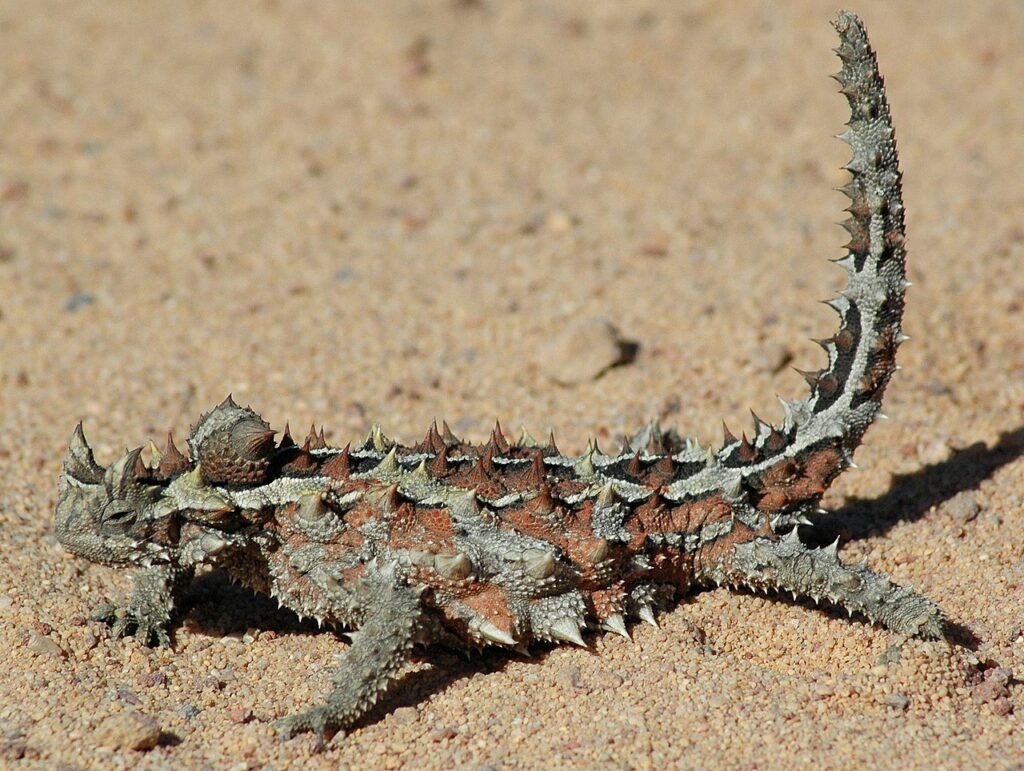
The Thorny Devil Lizard
The thorny devil lizard looks like a tiny spiny dinosaur, but these spines are actually camouflage them in their environments. Their coloration helps them blend in, too, especially amongst the scrub of the grasslands and in the Australian deserts. They mainly eat ants, but the other amazing thing about their spines is that they also store water in them. This is very useful in the desert, where water is scarce. Having these spines means that they can go for much longer in the hot sun without taking a drink.

The Glass Frog
The glass frog is pretty unique, and it’s not because of how cute they are. These cool animals look like normal frogs on top, sporting bright green colors, but they have translucent bellies if you turn one over. That means that you can see all of the frog’s organs. So what reason would they have to be translucent? Scientists discovered that the frog’s legs changed in opaqueness depending on the amount of light, and when they tucked their legs close to their sides, it was much more difficult to see where the outline of the frog was. That made it more difficult for predatory birds to find them.
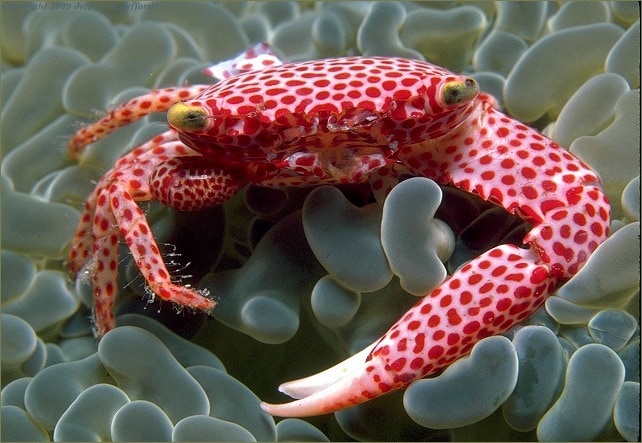
The Red-Spotted Coral Crab
The red-spotted coral crab is one of the best-dressed animals in the ocean. This little crab has a polka-dotted suit and sparkling green eyes, making it stand out from everything else around it. However, these spots are actually help them hide amongst the corals that they call their home. These crabs are only about a few inches across, so they’re actually pretty small. Their size also makes it easy for them to get away by hiding within the deeper recesses of the corals where predators can’t reach them.

The Saiga Antelope
The saiga antelope is another one of the strangest creatures to exist in today’s modern world. Unfortunately, it’s critically endangered, which means that there could be none of these marvelous creatures left in a few years. This unfortunate notion is a huge deal because they’re reminiscent of the animals living in the Pleistocene period. The most prominent feature of the saiga antelope is the bloated nostrils that face directly downwards. The shape of their nostrils helps filter dust out of the air during the summer migration and warm up cold air in the winter before going into the lungs.
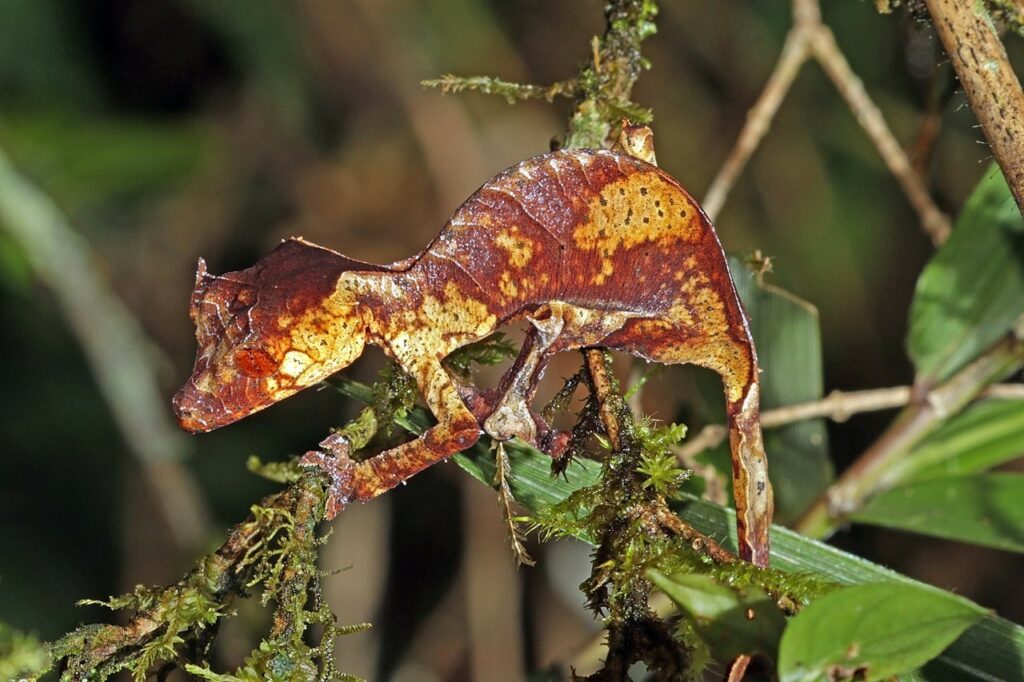
The Satanic Leaf-Tailed Gecko
Geckos are some fascinating lizards, but the satanic leaf-tailed gecko definitely takes the cake. It might look like something out of a nightmare, but you have nothing to worry about. Despite its appearance, this gecko is actually relatively harmless. The only thing they eat is insects, and they’re not poisonous. Their slightly barbed appearance helps to camouflage them amongst leaves in trees, where they spend most of their time so that they can’t get eaten by predators. You can only find these cool animals in Madagascar, so it’s unlikely you’ll come across these unique creatures unless you’re planning a trip.

The Giant Jumping Stick
Have you ever seen a stick move on its own? Well, you will when you take a look at the giant walking stick. It literally looks like a stick with legs and eyes. This insect is a type of grasshopper, so they have legs that can actually jump. In addition to its extraordinary appearance, it has large, bulbous eyes perched at the end of its head so that it can see everything that’s going on around it. This unique feature helps it be aware of and avoid predators by remaining perfectly still so that it looks like nothing more than a stick or a branch on a tree.
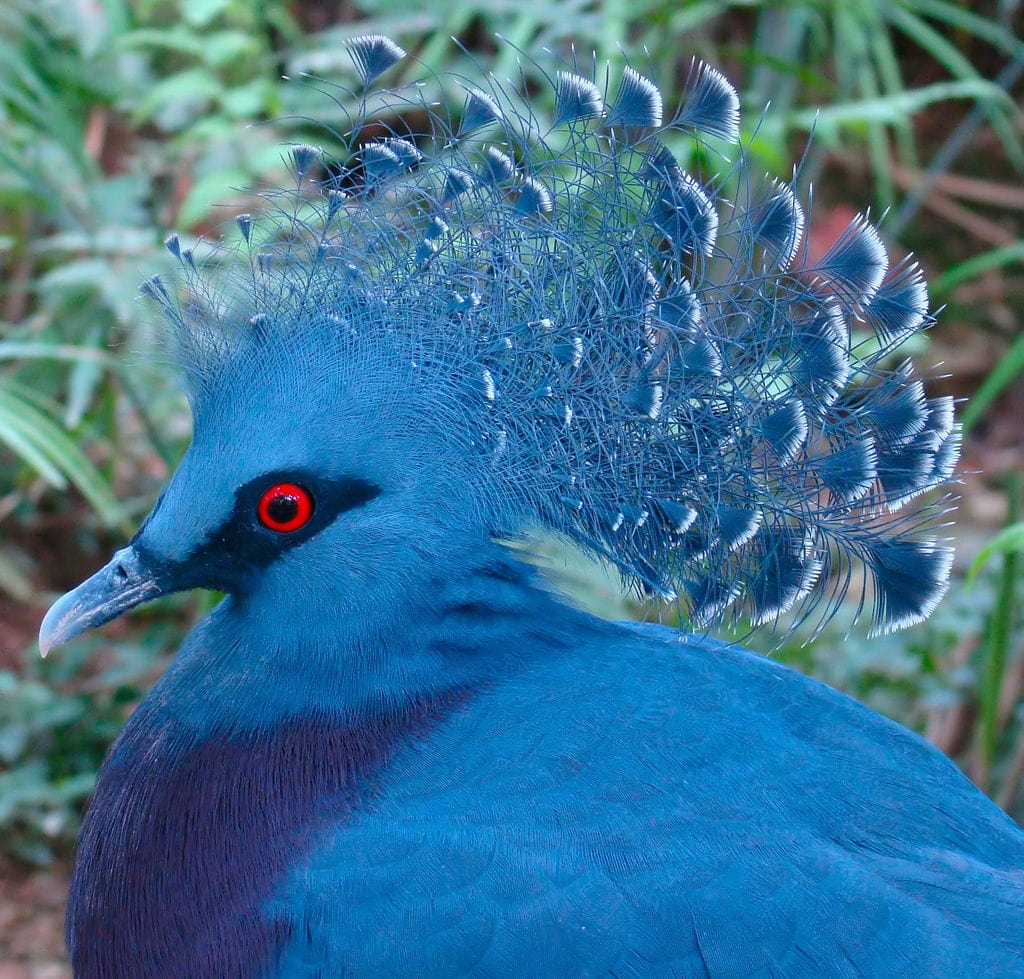
The Victoria Crowned Pigeon
The Victoria crowned pigeon is definitely a ground bird that stands out from the rest. You may be surprised to discover that it’s a type of pigeon that most people hate. However, many people have started keeping them as pets because of their gentle nature. It’s hard to think of a pigeon sporting such fancy plumage, but this bird decided to go against the grain. They’re not a bird for novice bird keepers since they require a lot of time and space. Another thing that makes this pigeon stand out from others of its kind is that it doesn’t have a soft coo; instead, it makes a loud boom sound that can be quite alarming.
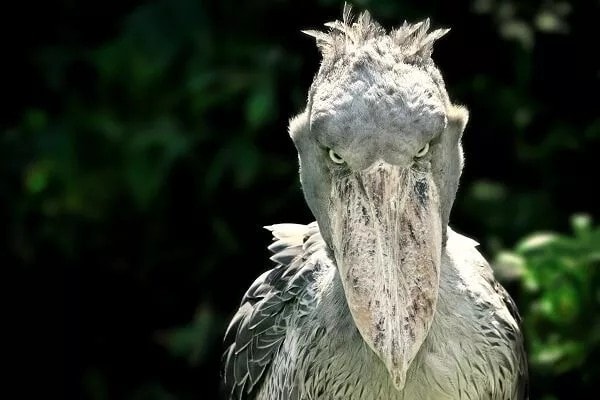
The Shoebill Stork
The shoebill stork is an enormous bird that can look intimidating but is actually quite docile when it comes to people. They even allow photographers to come right up to their nests and take pictures instead of trying to scare them away. The shoebill stork has quite an impressive beak, to say the least, but they only eat fish, frogs, water snakes, and young turtles. Nothing that would require a beak that looks like it could crack open a coconut. Many scientists believe that the modern shoebill stork is related to dinosaurs.
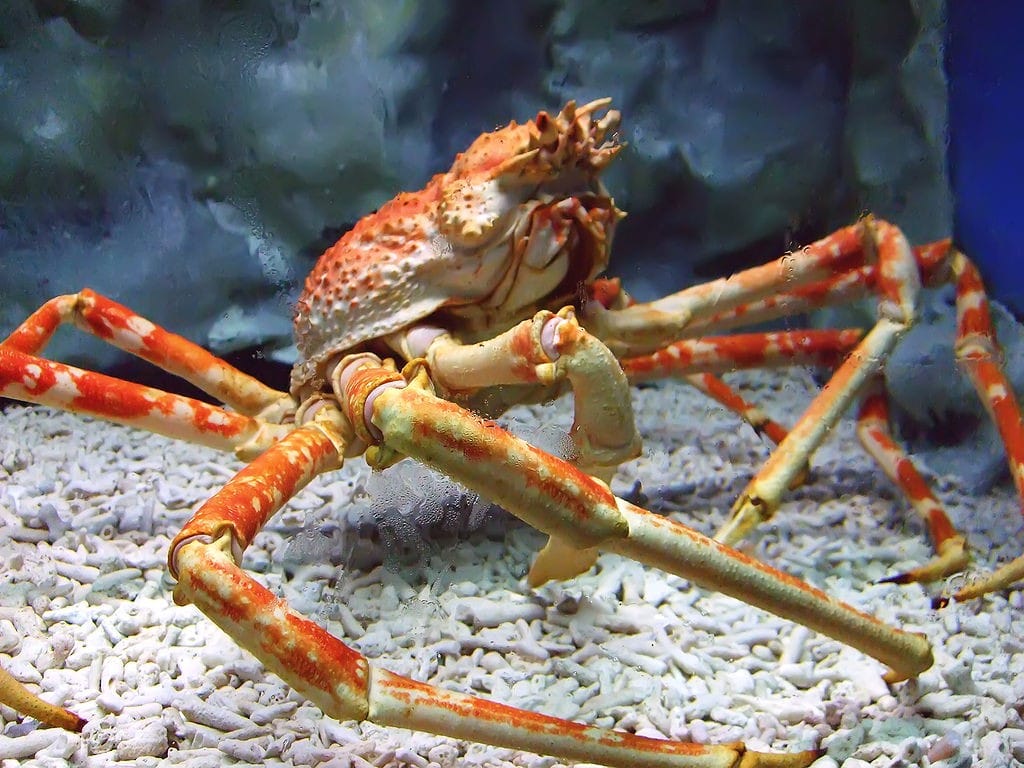
The Japanese Spider Crab
The Japanese spider crab is definitely a creature that looks like it crawled out of someone’s nightmares. It has incredibly long legs that make it look like a spider and can read up to 12 feet across from claw to claw. That’s nothing to laugh at, but thankfully, they’re not territorial in any way towards humans. In fact, they’re on a protected list because they’re considered a delicacy in Japan and run the risk of being overfished. Unlike other crabs that look for environments to blend into, the Japanese spider crab hunts at night to avoid predators.
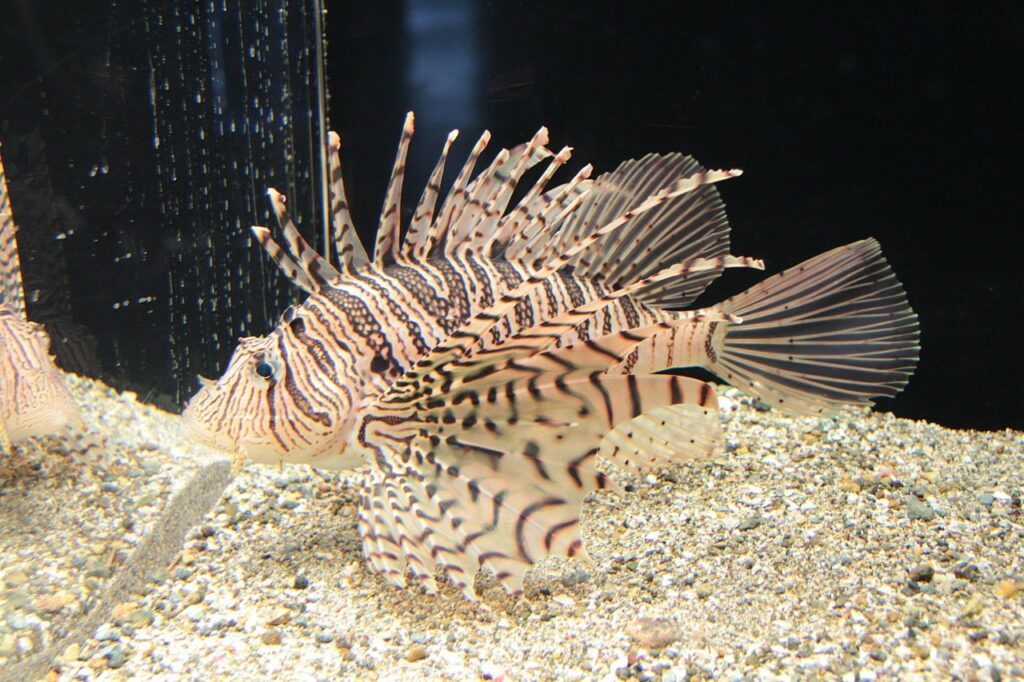
The Luna Lionfish
This marvelous fish is also called the dragon’s beard fish and is from the same family as scorpionfishes and lionfishes. Although it’s not that much different from other lionfish in the ocean, it has some differences in its coloration and markings that make it stand out from the rest. Don’t get too close to these fish, however. Although they only feed on small fish and crustaceans, the spines along the fish’s back contain venom that can be quite debilitating. You’re better off leaving them alone or looking at them from afar.
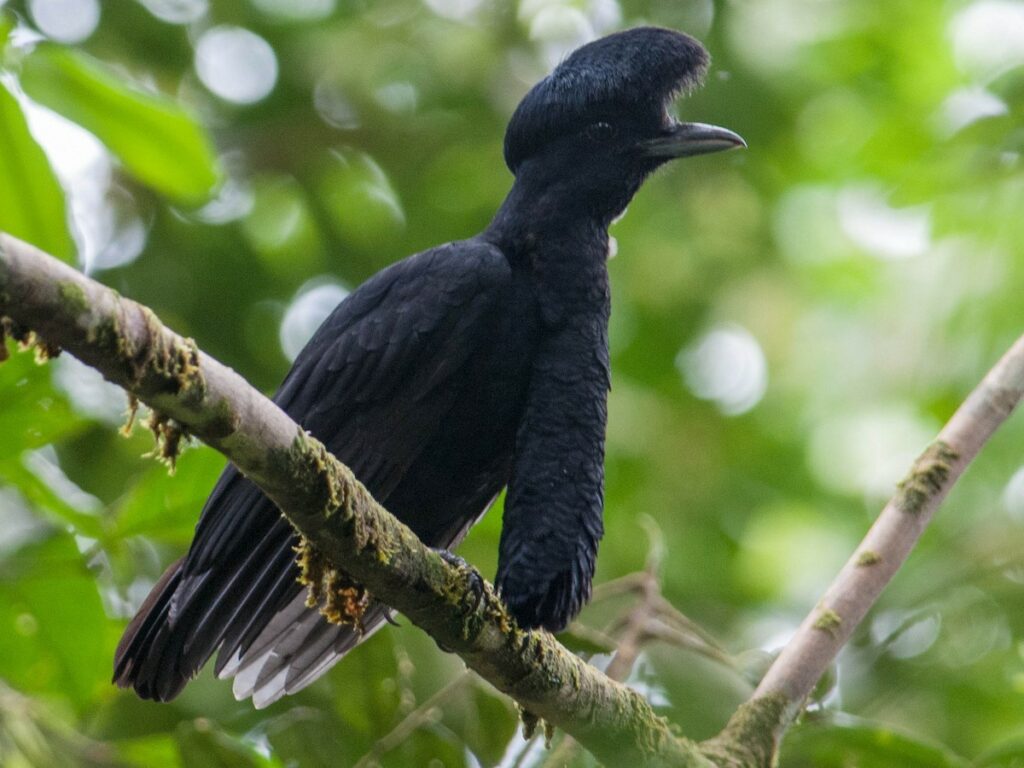
The Long-Wattled Umbrellabird
It’s a long name for a bird that, at first, doesn’t look that impressive, but a closer look at the long-wattled umbrellabird will reveal exactly why it has this name. The males have a long wattle that hangs from their throat that’s covered in feathers. So what do they do with it? They can extend these wattles to a magnificent length when putting on a display to find potential mates. Fancy birds like these tend to put on very fancy shoes that attract females as they try to one-up each other in the mating department.
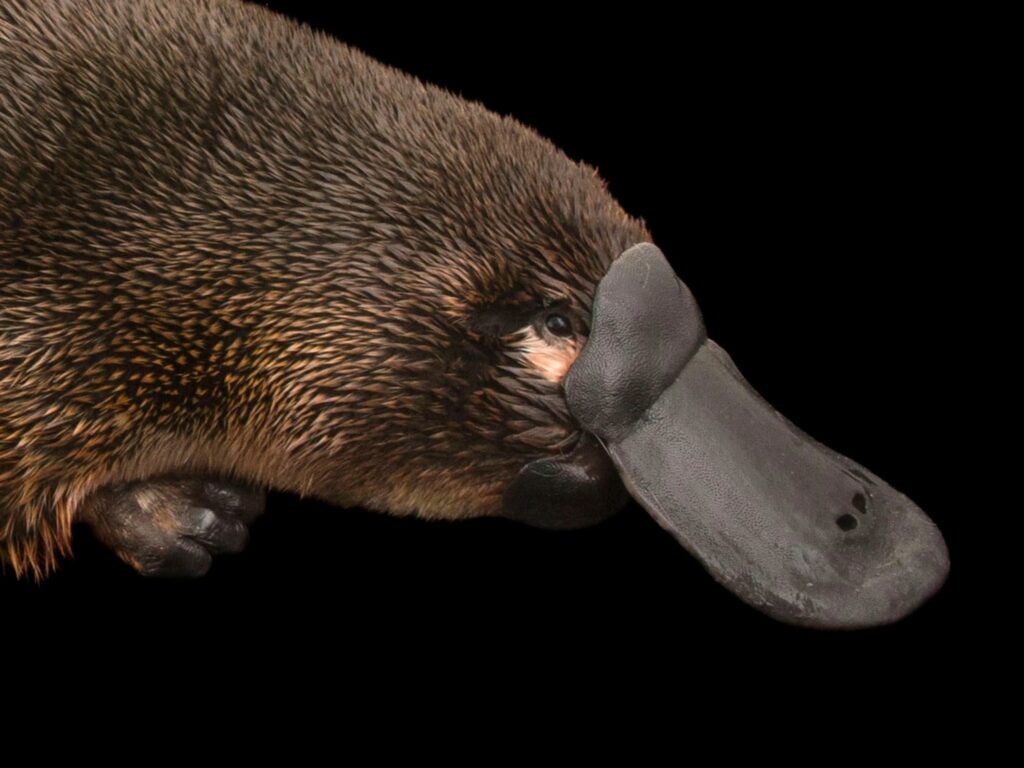
The Platypus
Everyone is aware of just how bizarre the platypus can be. In fact, Australia alone has some of the weirdest animals that aren’t found anywhere else on Earth. So what makes the platypus so strange? First is its appearance, and it looks like a beaver that had a duck’s bill grafted onto it. Secondly, it’s a warm-blooded mammal that lays eggs, which no other mammal in the world does. Lastly, the males are actually equipped with poisoned claws on their front feet in order to fend off predators. It’s definitely one of the strangest animals out there.
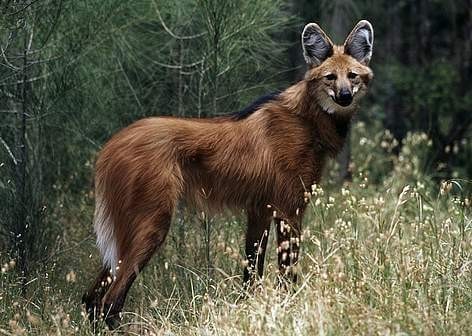
The Maned Wolf
Although the maned wolf looks more like a fox, it is indeed a wolf. With a rusty orange coat and black covering its legs, it would be very easy to mistake this animal for some kind of fox. Nevertheless, what makes this creature stand out more than its coat is its super long legs. The reason for these long legs is for the maned wolf to see over tall grasses so that it can find its prey more easily. They mostly hunt rodents, birds, and rabbits, all of whom use long grass to hide in. On occasion, you can find the maned wolf hunting fish in nearby water sources as well.
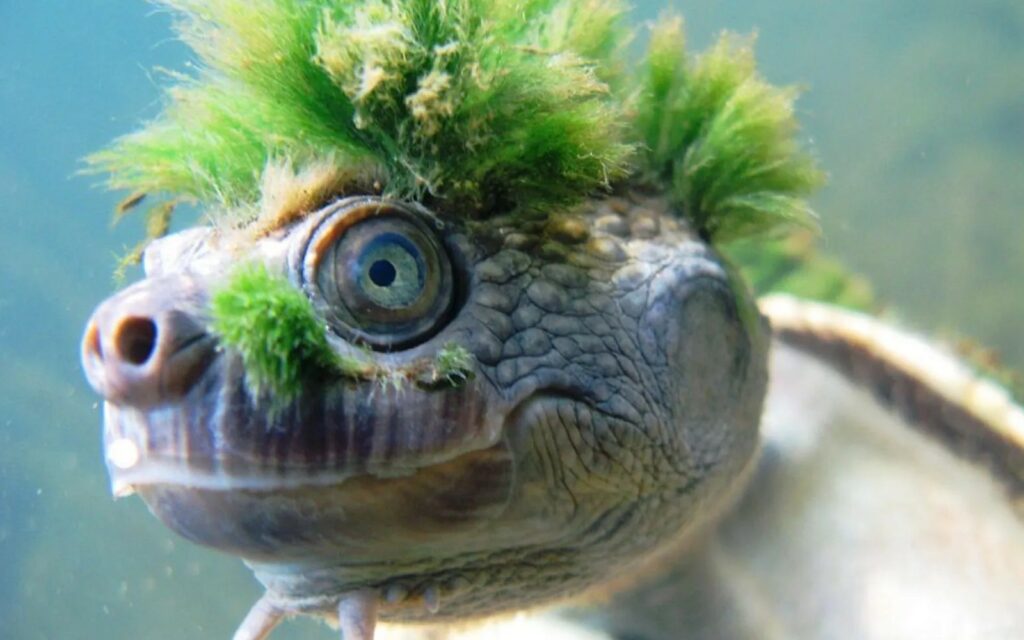
The Mary River Turtle
This unique turtle, the Mary River turtle, is on the verge of extinction. Scientists also call this cool animal the green-haired punk turtle, and that’s due to the grassy strands of green algae growing on top of its head. It definitely looks like a skater punk ready to grind his board along some rails. To add to the look, this turtle has two spike-like projections on its chin, almost like piercings. It’s a shame that they’re on the endangered list because this species is one of the sole survivors of lineages that date all the way back to the dinosaurs.

The Sage Grouse
The sage grouse may seem boring to look at, but that’s because you’ve never seen one when it’s in display mode. The males have fascinating mating and display rituals that make you question how they came up with these intricate practices in the first place. The sage grouse stand out from the rest because they have two air sacs on the front of their chests that they puff out when they’re ready to show off. It can appear obscene, but remember that these are the males who don these air sacs, not the females.
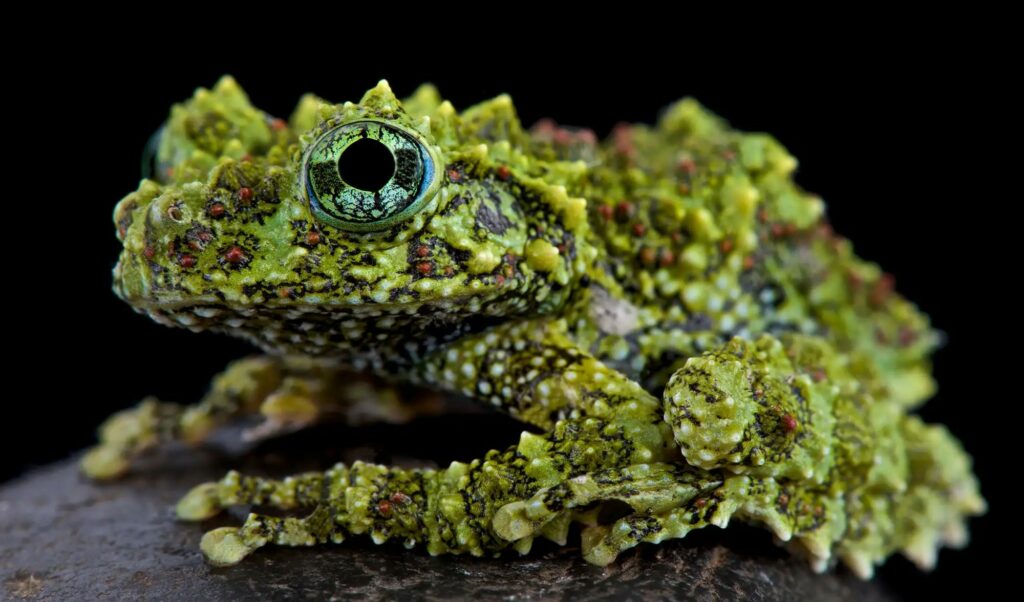
The Mossy Frog
If you were to walk past one of these mossy frogs, you might not even notice that it’s there. That means that its camouflage is doing the job! The mossy frog lives in Vietnam and China, though, so you might not come across one any time soon. Its skin has green and brown markings and warty bumps to resemble moss. This way, it can sit perfectly still amongst the trees and not be noticed by any predators. In addition to its excellent camouflage, it will curl up into a ball and pretend to play dead when it’s threatened.

The Giant Leaf-Tailed Gecko
The giant leaf-tailed gecko lives in Madagascar and feeds on most bugs, ranging from moths and roaches to crickets. They are masters of camouflage, as evidenced by their leaf-shaped tails so that they can perch themselves against a tree trunk and blend in perfectly. That makes it difficult for predators to find them. Furthermore, it is easier for these cool animals to hide from their prey. In addition to blending in quite well into its environment, this gecko has another defense mechanism when a predator threatens it. It will open its mouth and scream at such a pitch in an attempt to scare the predator away.
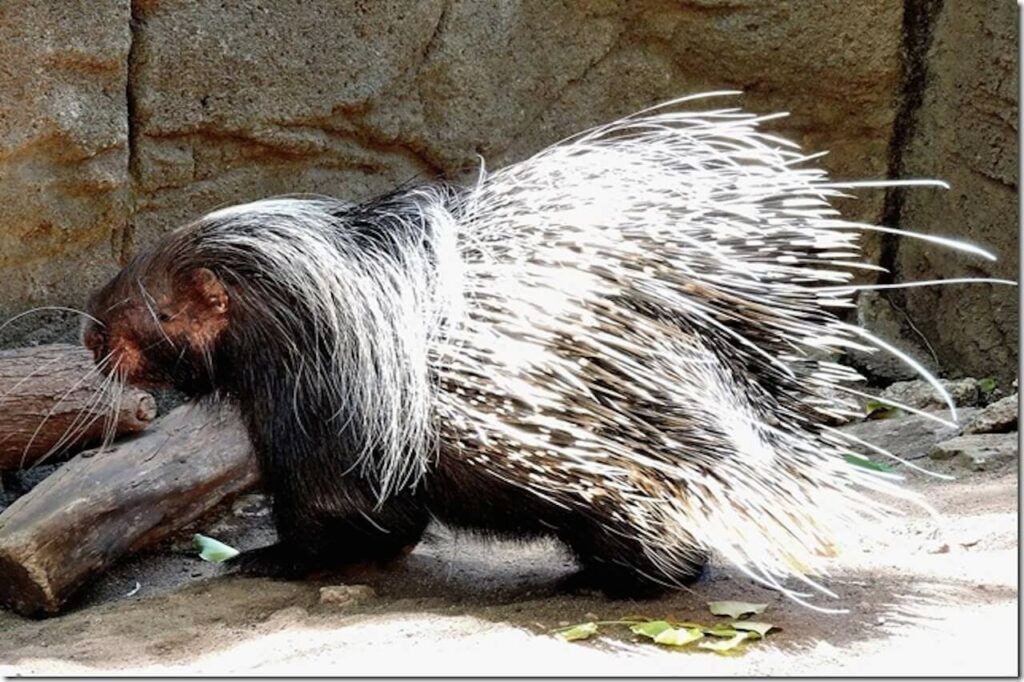
The Crested Porcupine
Porcupines are pretty rare to see. The Northern African crested porcupine is even rarer, but what’s so fascinating is that they’re the largest rodent porcupine in the world. Labeled as a rodent, it can get up to almost 30 inches long and can weigh as much as 50 pounds. People call this cool animal the crested porcupine because they can erect the quills along their back to form a crest. They can also make the quills rattle together when they feel threatened, possibly in an attempt to scare predators away.
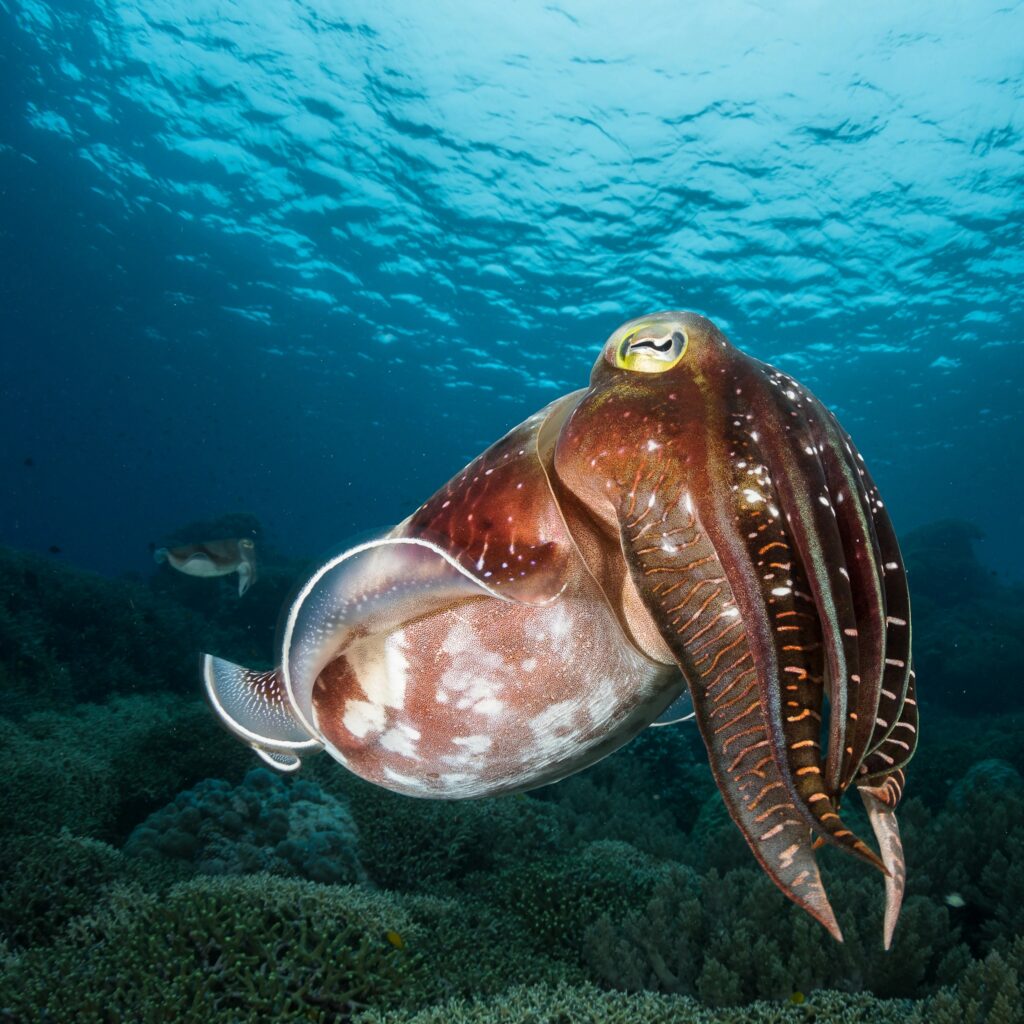
The Cuttlefish
Cuttlefish are considered “cute” by people who come across them. They are pretty strange to look at, especially with the weird shapes of their pupils, but that’s not why these seemingly docile creatures are on this list, and it’s because of the unique thing they can do with their skin. Experts consider these cool animals the “chameleons” of the sea because of their ability to change the color of their skin and the texture of it. Moreover, they can do all of this in a split second. They use this ability to camouflage themselves from predators or communicate with each other, and they actually have quite an elaborate series of communication elements.
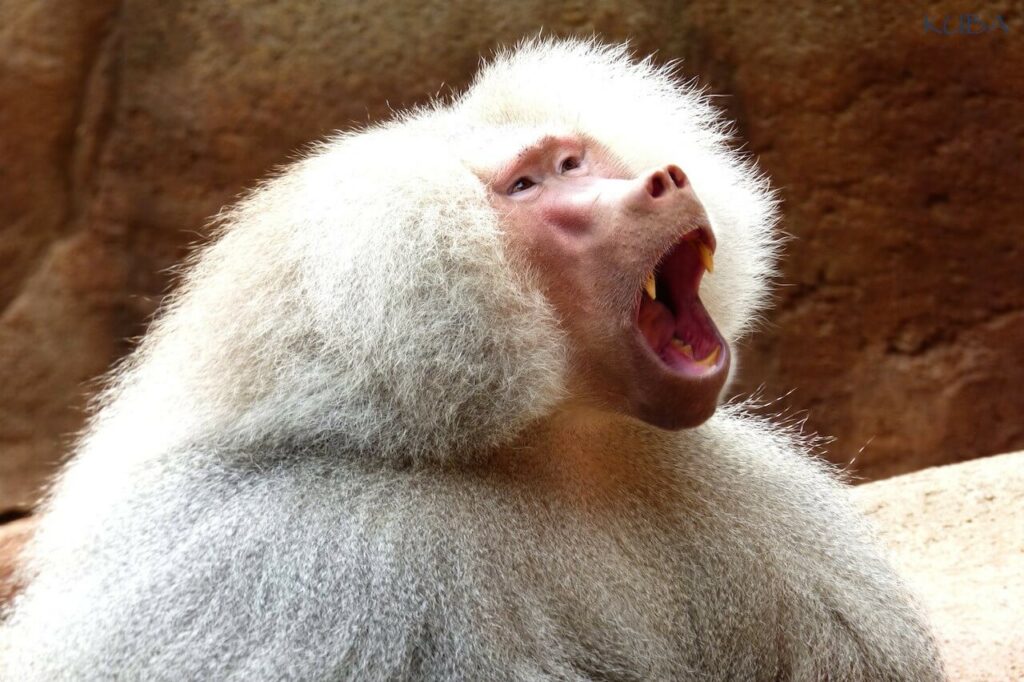
The Hamadryas Baboon
The Hamydras baboon can appear quite majestic, and it has a lovely thick mane of silver-grey fur with bright red faces for contrast. But beware: they have impressively long fangs that can easily cause injuries to those who threaten their space. However, what really sticks out on the Hamydras baboon… is its rear end. These cool animals have posteriors with large red paddings, and they provide cushioning for the hard surfaces they sit on. It can be a bit alarming to see for the first time and possibly a little obscene as well.

The Blue-Footed Booby
The blue-footed booby isn’t only known for its ridiculous name but also for the very bright coloration on its feet. Its name comes from the Spanish word “bobo,” which means stupid due to how tame the birds can be around people. Its feet and display rituals are also a marvel to behold. The blue color can vary with intensity, and it’s the males with the brightest feet tend to get mates. In examining the chicks of these males, the healthiest babies tended to have fathers that had the most brilliant blue feet as well.
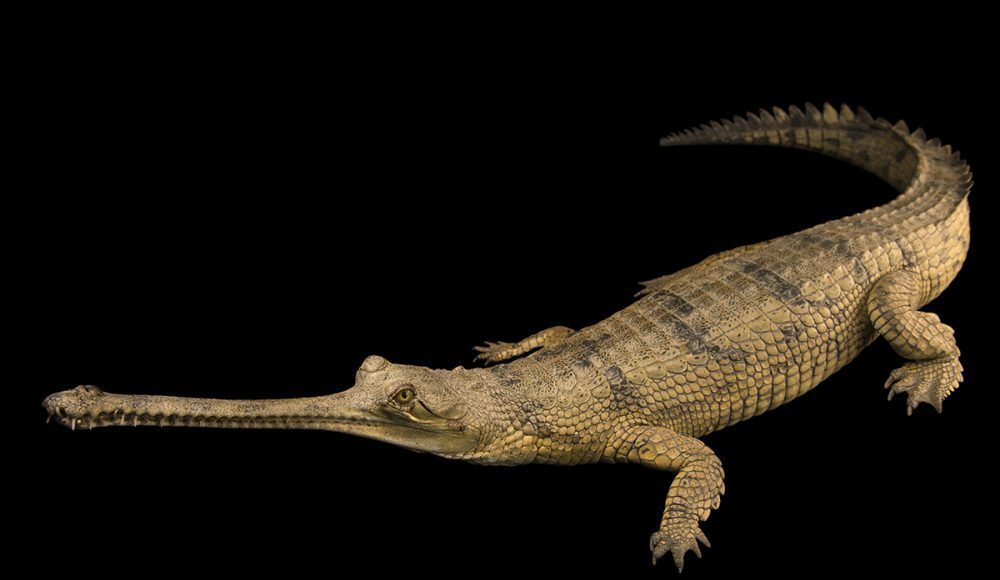
The Gharial
The gharial looks as if Mother Nature was playing a prank on a crocodile. Unfortunately, because of their unique appearance, they have become critically endangered. Scientists made gharial after the “ghara” which is an Indian pot, and this is due to the bulbous protrusion at the tip of a male gharial’s snout. These cool animals are the only crocodile species with a noticeable difference between males and females. Their long snouts help them catch fish, but very little of their food supply is in the rivers because of overfishing. Conservation efforts have been put in place to help these gharials to thrive.

The Polka-Dotted Zebra
Everyone is used to seeing zebras with stripes, so you can imagine how everyone’s jaws dropped when they came upon the first polka-dotted zebra. Born in Kenya, this isn’t a new species of zebra. Instead, it simply has a pigment disorder where the skin and short hair have more black than white. Many scientists believe that this disorder could result from inbreeding within zebra herds due to their decreased range as a result of hunting, ranches, and habitat loss. Unfortunately for this foal, it’s likely to die young, given that its pattern doesn’t help it blend in well with the rest of the herd, making it easy for predators to pick it out.

The Peacock Mantis Shrimp
As beautiful as the peacock mantis shrimp is, it’s not an aquatic animal that you should really mess with. Despite how small this shrimp is, you’re better off keeping your distance. And that’s because these cool animals know how to pack a punch. How powerful are they? Their punches are capable of ripping open the hard shells of mollusks and crabs, and it’s one of the fastest movements to take place underwater, not to mention in the entire animal kingdom. Furthermore, their punches can even kill other shrimp if they feel threatened, winding back with their powerful forearms and smacking the ever-living crap out of anything nearby.

